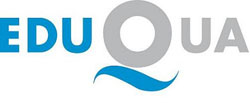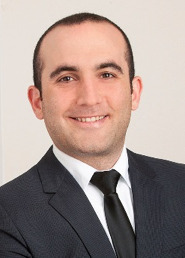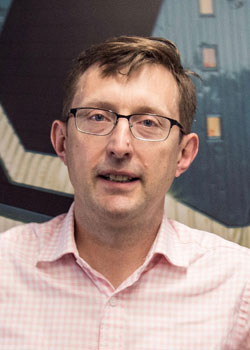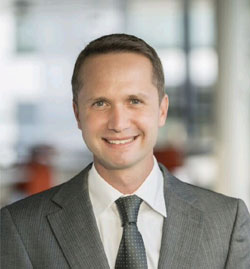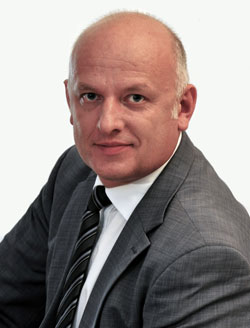SE-Training
Cursos
El curso Systems Engineering Foundations proporciona una sólida formación sobre los aspectos principales de la disciplina de Ingeniería de sistemas. Incluye el aprendizaje y práctica de la aplicación de…

FUNDAMENTOS SE
Próximas Fechas
18.06.2024 - 20.06.2024, Grenoble
25.06.2024 - 27.06.2024, Toulouse
02.10.2024 - 04.10.2024, Ankara
02.10.2024 - 04.10.2024, Munich
21.10.2024 - 23.10.2024, Zurich
Descripción del Curso
El curso Systems Engineering Foundations proporciona una sólida formación sobre los aspectos principales de la disciplina de Ingeniería de sistemas. Incluye el aprendizaje y práctica de la aplicación de las metodologías de Ingeniería de sistemas, ampliando conocimientos mediante cursos interactivos e incluyendo casos de uso detallados.
La asistencia al curso es estrictamente limitada a un número inferior a 8 participantes. Los ponentes mejoran de esta manera la eficacia de la formación. Dado que la Ingeniería de sistemas debe ser adaptada a las necesidades especificas de cada participante, aumentar la disponibilidad del ponente para cada participante es una medida clave de calidad de este curso de formación.
Así mismo, la cena con los ponentes del curso está incluida en las cuotas del curso.
Resultados
• Conocer los orígenes de la Ingeniería de sistemas y su aplicación
• Expresase de manera competente sobre la disciplina de la Ingeniería de sistemas.
• Saber cómo aplicar las metodologías de la Ingeniería de sistemas a desarrollos de proyectos complejos
• Saber cómo optimizar la Ingeniería de sistemas en su proyecto.
• Evaluar el alcance para la acreditación profesional de la Ingeniería de sistemas, ASEP o CSEP
Quién Debería Asistir
Este curso va dirigido a:
• Requirements Engineers
• Systems Engineers
• Project Managers
• Verification Engineers
• Architects
• Development Engineers
• Product Owners.
Precios del Curso:
Normal price 2,700 CHF / EUR; Early Bird discount 2,430 CHF / EUR
Duración
3 días
Curso impartido por
Seb Klabes 

Mike Johnson 
Marco Di Maio 


El curso de SE Management va dirigido a un tipo de público que juegue un papel directivo en ingeniería tal como Research and Development manager, Systems Engineering manager, Design…
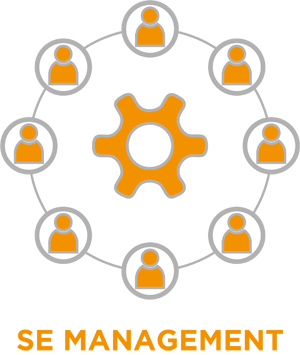
SE MANAGEMENT
Próximas Fechas
18.04.2024 - 19.04.2024, Zurich
Descripción del Curso
El curso de SE Management va dirigido a un tipo de público que juegue un papel directivo en ingeniería tal como Research and Development manager, Systems Engineering manager, Design and Development manager o cualquier otro papel relacionado con la implementación de estrategias organizativas de ingeniería y/o que impliquen una alta interacción con Systems Engineering leaders.
La asistencia al curso es estrictamente limitada a un número inferior a 6:1 participantes. Los ponentes mejoran de esta manera la eficacia de la formación. Dado que la Ingeniería de sistemas debe ser adaptada a las necesidades especificas de cada participante, aumentar la disponibilidad del ponente para cada participante es una medida clave de calidad de este curso de formación.
Así mismo, la cena con los ponentes del curso está incluida en las cuotas del curso.
Resultados
• Entender el valor de la Ingeniería de sistemas.
• Cómo establecer una organización SE led.
• Implementar procesos de forma efectiva para dar soporte a la organización de SE.
• Implementar las funciones y responsabilidades de SE y la estrategia de desarrollo profesional.
• Integrar SE como disciplina principal en la organización y saber cómo interactúa SE desde una perspectiva inter-disciplinaria.
Quién Debería Asistir
• Directores de equipos & departamentos
• Directores Engineering
• Engineering Process Owners
• Quality Managers
Precios del Curso:
Inscripción anticipada: 1,350 CHF, precio normal: 1,500 CHF
Duración
2 días
Curso impartido por
Mike Johnson
Estudiaremos y practicaremos técnicas para mejorar continuamente nuestra efectividad y eficiencia, para predecir lo qué se habrá logrado y cuando y a asumir las consecuencias, a solucionar un problema de…

CALIDAD “ ON TIME “
Próximas Fechas
Descripción del Curso
Estudiaremos y practicaremos técnicas para mejorar continuamente nuestra efectividad y eficiencia, para predecir lo qué se habrá logrado y cuando y a asumir las consecuencias, a solucionar un problema de disciplina, a explotar nuestro mecanismo de intuición, a sospesar prioridades continuamente, a mantener un objetivo, hacer frente a diferentes disciplinas y culturas, a adoptar una actitud Zero-Defect y a prevenir cualquier queja de la parte interesada. ¿Usted ya está llevando a cabo todo esto y piensa que es muy efectivo y eficiente? Esto es lo que otras personas pensaban antes de descubrirnos.
Resultados
• Cómo definir necesidades reales
• Cómo seleccionar la solución correcta
• Cómo saber que se puede confirmar y cumplir con las condiciones acordadas.
• Cómo optimizar una comunicación eficiente entre las personas que componen un proyecto
• En breve: cómo ofrecer el producto apropiado en el momento preciso
Quién Debería Asistir
Esta curso es apropiado para:
- Systems Engineers
• (Project) Managers
• Arquitectos, Desarrolladores
• Product Owners
• Scrum Masters
• Ingeniero de calidad
Precios del Curso:
Inscripción anticipada: 1,350 CHF. Precio normal: 1,500 CHF
Duración
2 días
Curso impartido por
Niels Malotaux
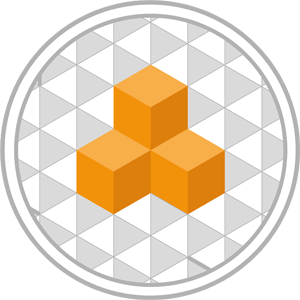
DESARROLLO DE PRODUCTO
Próximas Fechas
Descripción del Curso
Una buena definición y un diseño conceptual que tengan lugar al inicio del desarrollo son las mejores claves del éxito para nuevos productos. Proponemos un método de diseño sistemático “step by step”. Nuestro método integra, modifica y adapta una selección de técnicas y herramientas para proporcionar procesos innovadores, rápidos y de coste efectivo para la definición de nuevos productos y para el diseño conceptual de estos. Es un proceso flexible e integrado, dirigido por el cliente, que puede ser adaptado en base a las necesidades y requisitos específicos de cada organización y de cada equipo de proyecto.
Los participantes aprenderán y practicarán los principios y utilizarán las herramientas del método de desarrollo del nuevo producto. Los participantes serán capaces de mejorar su habilidad para iniciar y definir nuevas necesidades y habrán aprendido métodos y herramientas para realizar diseños de ingeniería de nueva y alta calidad y productos competitivos. Asimismo habrán aprendido cómo iniciar y dirigir el desarrollo de nuevos productos que satisfagan la necesidad real del cliente.
Resultados
• Los participantes aprenderán los principios y practicarán con las herramientas del método de desarrollo del nuevo producto.
• Los participantes serán capaces de mejorar su habilidad para iniciar y definir nuevas necesidades.
• Habrán aprendido métodos y herramientas para realizar diseños industriales de nueva y alta calidad y productos competitivos.
• Asimismo habrán aprendido cómo iniciar y gestionar el desarrollo de nuevos productos que satisfagan la necesidad real del cliente.
Quién Debería Asistir
• Miembros de equipos de definición de nuevo producto y diseño conceptual y personal de apoyo.
• Personal involucrado en el desarrollo de productos nuevos tales como Project Managers, Ingenieros de sistemas, Ingenieros de diseño, Ingenieros de Marketing o Calidad.
• Personal directivo interesado en entender los beneficios de la definición de nuevos productos y metodologías de diseño conceptual antes de la implementación.
Precios del Curso:
Inscripción anticipada: 2,700 CHF. Precio normal: 3,000 CHF
Duración
5 días
Curso impartido por
Amihud Hari

UNA METODOLOGÍA SISTEMICA Y SISTEMÁTICA PARA RESOLVER PROBLEMAS COMPLEJOS
Próximas Fechas
Descripción del Curso
Este curso se centra en sistemas de ingeniería como metodología sistémica y sistemática para resolver problemas complejos. El curso discute el razonamiento y Systems thinking como vía para entender una situación y los beneficios de ir más allá de Systems thinking para determinar el problema y la solución. El curso aplica Systems thinking a sistemas de ingeniería, y proporciona a los participantes un numero de herramientas conceptuales, analiza los sistemas y sus propiedades y se mueve por cada ciclo del sistema, analiza lo que hacen los ingenieros de sistemas en cada etapa y cómo lo hacen; identificando el tipo de problema al que se enfrenta el sistema de ingeniería en cada etapa y las herramientas y metodologías disponibles para el ingeniero en cada momento.
Resultados
• Entender las razones de las diferentes definiciones del término “sistema “y los diferentes enfoques sobre sistemas de ingeniería.
• Ser capaz de identificar los tipos de problemas a los que deben enfrentarse los ingenieros de sistemas en los diferentes estadios del proceso de desarrollo del sistema (SDP).
• Ser capaz de identificar la herramienta o metodología apropiada para solucionar el problema.
• Ser capaz de resolver el problema.
• Entender la necesidad del Ingeniero de sistemas en diferentes competencias, habilidades y conocimiento en diferentes partes del SDP.
• Entender que no siempre existe una única solución correcta para un problema.
• Haber mejorado Thinking and critical thinking. Estar por encima de la media de ingenieros de sistemas por su nivel de experiencia.
Quién Debería Asistir
• Personal que deba solucionar problemas complejos.
• Ingenieros y directivos de ingeniería.
• Ingenieros de sistemas que deseen mejorar sus habilidades en ingeniería de sistemas.
Precios del Curso:
Inscripción anticipada: 2,160 CHF. Precio normal: 2,400 CHF
Duración
4 días
Curso impartido por
Joe Kasser

APROXIMACIÓN DEL SISTEMAA LA GESTIÓN DE PROYECTOS
Próximas Fechas
Descripción del Curso
Este curso define un enfoque holístico para la gestión de proyectos para el desarrollo de nuevos sistemas tecno-céntricos complejos.
El énfasis se centra en las relaciones e interconexiones entre procesos de gestión de proyectos y procesos de ingeniería de sistemas para nuevos sistemas complejos.
Temas específicos incluyen el cambio de dirección, estrategia, organización del proyecto, desarrollo de equipo, estilos de liderazgo, prioridades, desarrollo de tareas, planificación, estimación de costes, monitorización de rendimiento, gestión de limitaciones y auditorias de proyecto. Los estudiantes aplican estos conceptos en proyectos mientras trabajan en equipos.
El dominio de estas herramientas clave es importante para el desarrollo de la carrera, así como los proyectos son un enfoque importante para que las organizaciones consigan sus objetivos estratégicos.
Resultados
• Entender y ser capaz de aplicar el enfoque del sistema a la gestión de proyectos.
• Conocer la metodología de planificación de un proyecto, supervisarlo y controlarlo.
• Conocer como se aplica la metodología.
• Ser capaz de planificar y validar planos para sistemas tecno-céntricos.
• Ser capaz de anticipar, planear y dirigir cambios en proyectos de desarrollo de sistemas.
Quién Debería Asistir
• Directivos e ingenieros que deseen profundizar en sus habilidades de gestión de proyectos gestionando el desarrollo de sistemas tecno-céntricos de complejidad creciente.
• Directivos interesados en perfeccionar su modo de gestionar.
• Directivos que deban hacer frente a problemas complejos.
• Directivos que quieran mejorar su manera de pensar y de expresarse.
Precios del Curso:
Inscripción anticipada: 2,160 CHF. Precio normal: 2,400 CHF
Duración
4 días
Curso impartido por
Joe Kasser

SYSTEMS THINKING AND BEYOND
Próximas Fechas
Descripción del Curso
El pensamiento holístico es una combinación de análisis, systems thinking y critical thinking. Después de una introducción del Systems thinking y critical thinking, los participantes aprenderán cómo aplicar pensamiento holístico a un sistema y maneras sistemáticas de trabajar problemas estructurados y no estructurados.
Resultados
• Habilidad de tratar problemas indefinidos con más de una solución.
• Mejorar la capacidad para resolver problemas y habilidades de systems & critical thinking.
• Habilidad para ir más allá del systems thinking en el análisis de un problema y en determinar su solución.
Quién Debería Asistir
• Directivos e ingenieros que deban hacer frente a problemas complicados.
• Directivos que quieran mejorar su manera de pensar y de expresarse.
• Ingenieros que opten a un ascenso para posiciones de dirección.
• Ingenieros de sistema que quieran aprender cómo utilizar y posteriormente ir más allá del systems thinking.
Precios del Curso:
Inscripción anticipada: 2,160 CHF. Precio normal: 2,400 CHF
Duración
4 días
Curso impartido por
Joe Kasser

PRESENTACIÓN MBSE & SYSML
Próximas Fechas
Descripción del Curso
Este curso proporciona a los participantes una combinación de aspectos fundamentales y prácticos de MBSE y SysML. Inicialmente el curso explica los conceptos básicos de MBSE . Posteriormente se desarrollan varios ejercicios prácticos para mostrar el uso de MBSE utilizando SysML sin utilizar ninguna herramienta específica. Se pondrá fin al curso con una discusión de los retos a los que hay que enfrentarse desarrollando y utilizando MBSE en las aplicaciones del mundo real y cómo dirigirlas.
Pre-requisitos del curso: Conocimiento en sistemas o software de ingeniería. No es necesaria formación previa.
Resultados
• Que es MBSE y el lenguaje, método y herramientas de modelaje.
• Conceptos básicos de SysML
• Porqué utilizar MBSE y cómo este gestiona los retos de la ingeniería de sistemas
• Como empezar con MBSE, que hacer y que no.
Quién Debería Asistir
• Todos los ingenieros, en particular, los ingenieros de sistemas y software / arquitectos o aquellos que trabajen necesidades, descripción de concepto, trazabilidad y aquellos que quieran mejorar su capacidad para analizar, diseñar y dirigir sus sistemas.
• Todos los directivos, en particular aquellos cuyo objetivo es demostrar que con MBSE se puede reducir tiempo de diseño, mejorar la calidad del producto, dirigir productos complejos, reducir costes y asegurar fiabilidad.
Precios del Curso:
Inscripción anticipada: 1,350 CHF. Precio normal: 1,500 CHF
Duración
2 días
Curso impartido por
Mohammad Chami
The Practical MBSE and SysML course provides a combination of the fundamentals of MBSE and the practical aspects of the adoption of MBSE with its concepts and key
enablers…

Practical MBSE & SysML
Próximas Fechas
22.04.2024 - 24.04.2024, Munich
Descripción del Curso
The Practical MBSE and SysML course provides a combination of the fundamentals of MBSE and the practical aspects of the adoption of MBSE with its concepts and key
enablers for successful MBSE adoption.
The course first deals with explaining the why of MBSE based on the participants challenges with actual practices. Next, the elements of the MBSE adoption, i.e., process, method, language, and tool are explained and demonstrated with several practical exercises. Particularly, the how, i.e., the method element and its development is trained based on the participants objectives without promoting any specific modelling tool.
Finally, the course wraps up with a discussion of the human-factors of MBSE adoption and the business factors for defining, developing and deploying MBSE in real-world applications. Including what comes after MBSE is deployed to ensure a long-term strategical MBSE adoption.
The course includes individual exercises, as well as group exercises with a daily interactive workshop covering detailed MBSE use cases.
The course can be attended exclusively at a Customer's site or in one of our regular external course venues, where there's a healthy mixture of engineers from different backgrounds.
No prior training is required.
Resultados
• What is MBSE, modelling language, modelling method and modelling tool?
• SysML basic concepts, elements, relations, and diagrams
• Why should we use MBSE and how it manages system engineering challenges
• How to start with MBSE, what to do and what not to do
• How to develop or customize the aimed MBSE method
• The human-factor aspects related to MBSE adoption
• How to ensure the delivery of valuable and usable system models
Quién Debería Asistir
All engineers, particularly systems and software engineers/architects or those who work with requirements, concept description, traceability and aim at improving how they analyse, design, and manage their systems.
All managers, particularly those who aim at deploying MBSE to reduce design time, improve product quality, manage complex products, save cost and ensure reusability.
Precios del Curso:
Inscripción anticipada: 1,890 CHF. Precio normal: 2,100 CHF
Duración
3 días
Curso impartido por
Mohammad Chami
Las inspecciones de documentos son una de las técnicas más económicas y necesarias para eliminar, e incluso más importante, para prevenir defectos.
A menudo se realizan revisiones pero se detectan…

MEJORANDO EL RESULTADO DE REVISIONES E INSPECCIONES
Próximas Fechas
Descripción del Curso
Las inspecciones de documentos son una de las técnicas más económicas y necesarias para eliminar, e incluso más importante, para prevenir defectos.
A menudo se realizan revisiones pero se detectan solo una parte de los defectos realmente importantes y que deberían ser detectados. Con solo unas horas de formación apropiada se podrían detectar muchos más errores en un mismo documento en el que anteriormente se había encontrado solo algún problema secundario. Esto debería evidenciar que con la formación apropiada, las revisiones e inspecciones pueden aportar los beneficios acordados. En este curso discutiremos el objetivo del proyecto, definiremos calidad y defecto, explicaremos el concepto y el efecto de Zero Defects, proporcionaremos una perspectiva de los tipos de inspección (Walkthroughs, Reviews, Fagan, Cleanroom, Gilb/Graham, Early Inspections) que inspección escoger y cómo calcular la rentabilidad de la inversión en inspecciones. Practicaremos lo que se aprende en un documento propio. Preparación: utilizaremos tres copias de una o dos páginas de un documento no demasiado confidencial y que se utilice en su proyecto. Quizás previamente revisado de la manera que usted lo hace habitualmente. Posteriormente podrá ver el potencial de llevar a cabo inspecciones apropiadamente. Atención: Después de la inspección quizás decida deshacerse del documento!
Resultados
• ¿Cuáles son los diversos enfoques de revisión e inspección?
• Por qué y cuándo usar qué enfoque
• Cómo encontrar muchos más problemas reales en documentos de lo que puedas imaginar
• Cómo organizar revisiones / inspecciones muy efectivas de manera muy eficiente
• Cómo prevenir las emociones que a menudo surgen en las revisiones
• Cómo calcular el retorno de la inversión de las revisiones e inspecciones
• Cómo resolver los problemas encontrados de la manera más eficiente posible
• Cómo evitar que los problemas encontrados sean causados nuevamente
Quién Debería Asistir
Cualquiera que expida documentos, que debería estar expidiendo documentos o que supuestamente deba evaluar documentos como contratos, temas de negocios, necesidades, casos de uso, fichas, diseños, dibujos, códigos o planos de prueba.
Precios del Curso:
Precio normal: 800 CHF
Duración
1 día
Curso impartido por
Niels Malotaux
Este curso proporcionará a sus asistentes fundamentos sólidos de las motivaciones y técnicas asociadas a diseñar sistemas y productos más seguros. Revisaremos una variedad de accidentes reales y analizaremos…

FUNDAMENTOS DE SEGURIDAD DE SISTEMA Y DE PRODUCTO
Próximas Fechas
Descripción del Curso
Este curso proporcionará a sus asistentes fundamentos sólidos de las motivaciones y técnicas asociadas a diseñar sistemas y productos más seguros. Revisaremos una variedad de accidentes reales y analizaremos la raíz de las causas, para destacar que los errores de organización, de diseño y problemas operacionales tienen la capacidad de crear sucesos catastróficos. Dentro de la aproximación al SE, analizaremos métodos para evaluar la seguridad y los riesgos de los factores humanos para un conjunto de sistemas tecnológicamente diversos, antes de considerar como definir las necesidades de diseño para controlar peligros potenciales. El curso también proporcionará una perspectiva de sistemas de dirección de seguridad, informes sobre riesgos, procesos de seguridad, investigación de incidencias, seguridad electrónica compleja (incluyendo software), distintivo CE y materiales peligrosos.
Resultados
• Conseguir entender que significa “ seguro”, los beneficios del negocio y del proyecto ligados a la gestión de la alta seguridad y el coste de los accidentes.
• Ser capaz de identificar los elementos clave asociados con la “ seguridad del diseño” durante todas las etapas de la vida útil del producto.
• Tener una perspectiva de las herramientas y técnicas empleadas por los especialistas de seguridad cuando se adopta un riesgo basado en un enfoque de seguridad.
• Considerar los aspectos de seguridad asociados al software, interacciones humanas y del sistema, nuevas tecnologías y sistemas complejos de sistemas y autonomía.
Quién Debería Asistir
• Ingenieros de diseño que quieran mejorar o refrescar su conocimiento en seguridad de sistemas para incrementar su integración dentro del equipo de ingeniería de sistemas.
• Directivos de proyecto y de programas interesados en entender cómo una ingeniería de seguridad insuficiente puede llevar a un riesgo de proyecto prohibitivo.
• Directivos de Ingeniería que deseen mejorar su conocimiento como especialista para conseguir lo mejor de su equipo de seguridad.
• Directivos interesados en entender sus obligaciones legales y morales para asegurar que los productos y sistemas sean diseñados, puestos a punto y funcionen de forma segura.
Precios del Curso:
Inscripción anticipada: 1,350 CHF. Precio normal: 1,500 CHF
Duración
2 días
Curso impartido por
Richard Maguire 
Jim Mateer 

COMPLEJIDAD EN LA GESTIÓN DEL PROYECTO Y EL PROGRAMA.
Próximas Fechas
Descripción del Curso
Cynefin framework ha sido utilizado por todo el mundo en contextos tan diversos como salas de juntas de firmas de moda internacionales, equipos de desarrollo de software y equipos SWAT en las calles de las ciudades. Los altos cargos lo han aplicado en todos los niveles de la organización y en prácticamente todas las industrias.
Dave Snowden, el fundador de Cognitive Edge y creador de Cynefin framework, utilizará ambos conceptos en una Master class de un día para mostrar cómo en la disciplina de Gestión de proyecto y programa, la complejidad puede reducirse, gestionarse y controlarse de forma efectiva.
El uso original en Knowledge Management, (Complex Acts of Knowing ) fue valorado recientemente como el tercer articulo más citado en su campo y el artículo de portada en HBR sobre su aplicación de liderazgo ha ganado múltiples premios. Fue valorada como la primera aplicación práctica de ciencia compleja a temas de negocios. Más recientemente fue utilizada en una publicación de Prince II Agile con aplicación directa a la Gestión de proyecto.
Un nuevo programa multi-cliente está a punto de iniciarse, con la finalidad de desarrollar métodos y herramientas para una nueva edición de Prince II, enfocados a un conjunto más amplio de conocimientos y prácticas.
La complejidad es un cambio de paradigma importante des de Systems thinking , el cual ha dominado las últimas décadas y trabaja a partir de una base de ciencias naturales y de una metáfora ecológica, no des de una metáfora de la ingeniería de la organización y su mercado.
Resultados
• Entender los conceptos principales de Cynefin framework y su aplicación en la Gestión de proyecto y programa.
• Saber cómo aplicar diversas metodologías para la complejidad de navegación.
• Comprender los intrincados links entre complejidad y gestión de proyecto
• Entender nuevos métodos de mapping attitude (indicadores principales) en oposición al cumplimiento ( indicador de demora) y el papel de las alertas anticipatorias en la gestión de programa.
• Apreciar la representación en “fractal” o multi capa a tiempo real de la cultura organizacional y de programa y su impacto en el rendimiento.
Quién Debería Asistir
• Gerentes de proyectos
• Los académicos quienes se interesan en el tema.
• Los gerentes con responsabilidades pertinentes.
Precios del Curso:
Precio normal: 800 CHF
Duración
1 día
Curso impartido por
Dave Snowden

INTRODUCCIÓN AL DESIGN THINKING Y LEAN INNOVATION
Próximas Fechas
Descripción del Curso
Aprender cómo combinar la Ingeniería informática con Designs Thinking y Lean Start-up en la fase de innovación inicial.(Fase de pre-desarrollo ).
El curso de Design thinking proporciona una comprensión en profundidad sobre la manera de pensar de Design thinking y su ciclo de solución de problemas, basados en una pronta iteración e interacción del cliente.
La importancia de un concepto bien definido incluyendo la concepción de producto/servicio, diseño de negocio y clara definición de las necesidades del cliente, es fundamental antes de iniciar el desarrollo. Cuanto más tarde se detecten los errores, mayor es el coste y la pérdida de trabajo, dinero y tiempo.
Design Thinking e Ingeniería informática son ambos métodos de solución de problemas que intentan hacer frente a una mayor complejidad.
A simple vista ambos planteamientos son diferentes pero vistos más de cerca, vemos que son cada vez más complementarios y comparten muchas ideas.
Combinar ambos planteamientos y cambiar el modo de pensar es esencial cuando trabajamos con ambigüedades.
El curso tiene una orientación muy práctica. Los participantes pasarán más de la mitad del tiempo haciendo prácticas, es decir, conociendo al usuario e identificando necesidades, creando nuevas ideas, construyendo prototipos y probándolos con el usuario.
Resultados
• Entender los conceptos básicos de Design Thinking y Lean Innovation.
• Aprender cómo combinar Design Thinking
• Construir y probar diferentes prototipos de baja resolución (ej. Critical experience o prototipo Dark Horse) con el usuario y mejorar la comprensión de la situación.
• Utilizar Lean canvas para resumir los hallazgos y mejorarlos iterativamente.
• Practicar Design Thinking y Lean Innovation en un objetivo práctico durante los tres días.
• Reflejar y transferir el aprendizaje a sus negocios diarios y proyectos propios.
• Definir como implementar Design Thinking / Lean Innovation en su entorno
Quién Debería Asistir
• Gerentes e ingenieros que deseen enriquecer sus competencias en la resolución de problemas con enfoques ágiles y centrados en el usuario
• Gerentes que buscan formas de crear innovaciones radicales
• Gerentes que conducirían la transformación digital en su área
• Cualquier persona que sea responsable de crear nuevos productos, servicios, modelos comerciales y quiera integrar métodos orientados al diseño
Precios del Curso:
Anticipado: 1,350 CHF. Normal: 1,500 CHF
Duración
2 días
Curso impartido por
Patrick Link
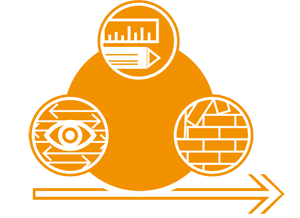
DESIGN THINKING y LEAN INNOVATION Avanzado
Próximas Fechas
Descripción del Curso
Design Thinking e Lean Innovation son conceptos fáciles de entender, sin embargo, con la práctica surgen más preguntas. En este taller avanzado profundizamos y aprendemos herramientas y métodos adicionales (como el diseño de ecosistemas empresariales), reflejamos las experiencias prácticas y los desafíos de los participantes y cómo superarlos.
Además de combinar Pensamiento de diseño y Pensamiento de sistemas, aprendemos a hacer una profunda inmersión en el diseño de un ecosistema empresarial, crear mapas de grupos de intere y echar un vistazo al modelo híbrido (que combina Design Thinking y Big Data Analytics).
El taller también se enfocará en el desafío de implementar Design Thinking en su organización.
Resultados
• Discutir los desafíos ocurridos en grupos facilitadores y administrar proyectos de pensamiento de diseño / Innovación Lean. Definir formas de superar esos desafíos.
• Resuelve desafíos prácticos
• Comprender los desafíos en la implementación de Design Thinking en su organización
• Aprender a diseñar un ecosistema empresarial utilizando un enfoque de Ecosistema Mínimo Viable (MVE)
• Cree un mapa de grupos de intéres de su organización y defina una estrategia "cómo llevárselo a casa"
• Combine Big Data Analytics y Design Thinking con un modelo de gestión híbrido
• ¿Cuál es la mentalidad? ¿Y cómo crear esta mentalidad?
• Refleja y transfiere los aprendizajes a tu negocio diario y a tus propios proyectos
Quién Debería Asistir
Los participantes deben tener alguna experiencia práctica con Design Thinking y / o Lean Start-up o Lean Innovation e incorporar sus propios desafíos al curso. Durante el curso, reflexionamos sobre las experiencias del usuario y elaboramos juntos posibles soluciones para resolver esos desafíos.
• Los gerentes e ingenieros que deseen enriquecer sus competencias de resolución de problemas con enfoques ágiles y centrados en el usuario
• Gerentes que buscan formas de crear innovaciones radicales
• Gerentes que conducirían la transformación digital en su área
• Cualquier persona que sea responsable de crear nuevos productos, servicios, modelos comerciales y quiera integrar métodos orientados al diseño
Precios del Curso:
Anticipado: 1,350 CHF. Normal: 1,500 CHF
Duración
2 días
Curso impartido por
Patrick Link 

Michael Lewrick 


La ingenería de sistemas acústicas
Próximas Fechas
Descripción del Curso
La acústica implica la generación de ruido, su trajecto a través de estructuras sólidas y fluidos, y la respuesta del receptor (una persona o el equipamiento). Generalmente el objectivo es de controlar la respuesta a un nivel aceptable a un precio, peso o talla añadido mínimo. A menudo los detalles están complicados, el número de variables están altos, y las restricciónes discrepados intervienen. La aplicación de tecnícas SE es esencial para que un resultado eficiente y eficaz pueda ser logrado.
Los principales mayores serán introducidos, con información detaillada incluida en los folletos. Sus aplicaciónes están explicados utilisando ejemplos prácticos y fortalecidos por ejemplos directos de problemas acústicas familares.
Resultados
• El entendimiento de lo esencial en la teoría de acústica.
• Análysis de cualquier problema en componentes más fáciles y interfaces.
• La aplicación del modelo V aplicado a la acústica, guiado por los ejemplos prácticos.
• El uso de herramientas de hoja de cálculo libremente disponibles, aplicaciónes y referencias de datos a sostener el SE en resolución de problemas de la acústica y la optimización.
• Las estrategías creativas a la acústica, rudio y el control de vibración.
• La solución de un problema típico, la redución del ruido en un ambiente de máquinas para cumplir con los requisitios de la seguridad.
• La confianza en enfrentar las situaciónes acústicas diversas encontradas en el mundo real de la ingenería.
Quién Debería Asistir
Este curso es idealmente adecuado a los ingenieros mecánicos, civiles, eléctricos, de herramientas médicas, y aeroespacial quienes necesitan entender y mostrar conformidad con requisitos acústicos, integrar acústicos en los diseños de productos y obtener una calidad excelente de sonido en sus productos.
Precios del Curso:
Precio Anticipado: 1,350 ; Precio Normal: 1,500 CHF
Duración
2 días
Curso impartido por
Nick Eaton
El curso de la fiabilidad de sistemas aporta el conocimiento profundo y el entrenamiento sobre el análysis y el modelo de la fiabilidad de sistemas. Los participantes aprenderán no solo…

La fiabilidad de sistemas
Próximas Fechas
28.05.2024 - 29.05.2024, Zurich
Descripción del Curso
El curso de la fiabilidad de sistemas aporta el conocimiento profundo y el entrenamiento sobre el análysis y el modelo de la fiabilidad de sistemas. Los participantes aprenderán no solo de los conceptos pero se profundizaron sus conocimientos en los talleres.
El guión del curso :
• La introdución de conceptos de fiabilidad y los modelos de fiabilidad.
• El cálculo, análysis y el pronóstico de la fiabilidad.
• Funciónes de fracaso y su uso en FMECA.
• Asegurando la fiabilidad de sistemas.
• Aportar evidencia de la fiabilidad de sistemas.
Resultados
Los participantes saben como análizar, demostrar y predecir la fiabilidad de sistemas.
Los participantes entienden las teminiologías de fiabilidad comúnes y los modelos de fiabilidad comúnmente utilizados.
Los participantes aprenden y practican :
• Los medios de fracaso funcionales, los efectos y el análysis de criticidad (FMECA).
• Los sistemas de electromecánico de FMECA.
• El análysis, pronóstico y la monitorización de la fiabilidad de sistemas.
Quién Debería Asistir
• Ingenieros
• Responsables de Calidad
• RAM Managers
• Ingenieros de seguridad y cualquier persona que necesite asegurar y / o analizar la fiabilidad del sistema.
Precios del Curso:
Anticipado: 1,350 CHF. Normal: 1,500 CHF
Duración
2 días
Curso impartido por
Seb Klabes 

Kevin Howard 

Resolución de problemas por los negocios
Próximas Fechas
Descripción del Curso
En la esfera de negocios, la complejidad se causa por varios factores y limitaciónes, tal como los cambios súbitos al mercado, los retos competitivos, los recursos limitados y una incertidumbre alta sobre lo que en realidad necesitan los clientes.
Resolver problemas complejos es una de las habilidades más urgentemente requeridos en nuestros tiempos. Mientras el mundo alrededor de nosotros se convierte en algo más avanzado, los mercados se hacen más difíciles entender, por diseñar y por implementar las soluciones con éxito. Esto se puede ver a través de múltiples industrías y está causando problemas de primera línea significativos resultando en los comercios perdiendo su ventaja competetiva de la noche a la mañana.
En este curso de un día, se enseña un procesus sistemático metodológico por aplicar a la resolución de problemas complejas de negiocio. Cada etapa del procesus será expandida incluir ejemplos del mundo real además de varias estrategias para adaptar y aplicar al procesus. El curso incluye un taller de grupo moderado en lo cúal trabaja sobre un ejemplo contemporáneo.
Además, una cena con el presentador del curso está incluido en el precio.
Resultados
• Comprensione e applicazione di un processo metodologico sistematico da applicare a risoluzione di problemi complessi nel business
• Esperienza nell'utilizzo di numerose tecniche per trovare e sviluppare soluzioni di alto valore, es. Il metodo del Problema 3-6-5
• Esperienza nell'utilizzo di numerose tecniche per la valutazione del valore delle soluzioni tecniche, es. trade-off esteso
• Esperienza nel condurre il gruppo tecnico del workshop per una sessione
Quién Debería Asistir
Dueños de productos, cabecillas de negocios, personaje de venta y mercancía.
Precios del Curso:
Normal: 800 CHF
Duración
1 día
Curso impartido por
Mike Johnson
La resolución de problemas técnicas es una de las habilidades más urgentemente requeridos hoy en día. Mientras la tecnología se vuelve más y más avanzada, las soluciones posibles creados por…

Resolución de problemas técnicas
Próximas Fechas
Descripción del Curso
La resolución de problemas técnicas es una de las habilidades más urgentemente requeridos hoy en día. Mientras la tecnología se vuelve más y más avanzada, las soluciones posibles creados por ella se vuelven más y más complicados entender, diseñar e implementar con éxito. Se puede verlo a través de muchas industrias y se causa problemas de primera línea significativas en fiabilidad, mantenimiento, el precio del proyecto, el desempeño del producto y horarios en general.
Durante este curso de un día, se enseña un procesus sistemático metodológico por aplicar a la resolución de problemas complejos. Cada etapa del procesus será expandida incluir ejemplos del mundo real además de varias estrategias por adaptar y aplicar al procesus. Este curso incluye un taller de grupo moderado en lo cuál trabajará sobre un ejemplo contemporáneo.
Además, una cena con el presentador del curso será incluido en el precio.
Resultados
• El entendimiento y aplicación de un procesus sistemático metodológico por aplicar a la resolución de problemas técnicos.
• Aprender por experiencia utilizando varias técnicas buscar y desarrollar soluciones de alta valor, por ejemplo, Triz.
• Aprender por experiencia utilizar varias técnicas por evaluar el valor de soluciones técnicas, por ejemplo compensación extendida.
• Aprender por experiencia dirigir un taller técnico por una sesión.
Quién Debería Asistir
• Ingenieros de sistemas
• Lideres técnicos
• Gerentes de proyectos
• Ingenieros de requisitos
• Arquitectos de sistemas
• Ingenieros del desarrollo
• Ingenieros de verificación y validación
• Ingenieros de calidad.
Precios del Curso:
Normal: 800 CHF
Duración
1 día
Curso impartido por
Mike Johnson
Administrar la complejidad de los productos a lo largo de su ciclo de vida es un desafío creciente en muchas industrias. Conocer y controlar el estado de los sistemas mecatrónicos…

Configuration Management
Próximas Fechas
Descripción del Curso
Administrar la complejidad de los productos a lo largo de su ciclo de vida es un desafío creciente en muchas industrias. Conocer y controlar el estado de los sistemas mecatrónicos durante el desarrollo, en la cadena de suministro y después de las ventas es un requisito básico para el fabricante de hoy. Numerosos requisitos establecidos por clientes y organismos reguladores, junto con un número cada vez mayor de variantes de productos, plantean desafíos para la gestión de los datos del producto, la documentación y los cambios a lo largo de la vida del producto.
La Gestión de configuración ayuda a gestionar esta complejidad y permite el desarrollo y la operación eficiente de los sistemas.
Los objectivos de la Gestión de Configuration son:
• Administre todos los datos y documentación relevantes del producto en el contexto del producto
• Proporcionar una vista coherente y completa sobre todos los componentes del producto y su documentación válida a lo largo de las fases del ciclo de vida (Análisis, Factibilidad, Desarrollo, Implementación y Fabricación, Operaciones y Servicio)
• Integrar la gestión de datos del producto en los procesos del ciclo de vida del producto (desarrollo, prueba, cadena de suministro, operaciones, logística, mantenimiento)
• Administrar variantes de productos, cambios en las líneas básicas de la definición y configuración del producto
• Apoyar la eficiencia en la cadena de valor.
En este curso de un día se proporcionará una comprensión básica sobre cómo la gestión de la configuración respalda cada etapa del ciclo de vida del producto, comenzando con la idea del primer producto hasta el retiro de sistemas industriales complejos. Aprenderemos sobre las diferentes actividades de Configuration Management y cómo nos ayudan a hacer que la complejidad sea manejable. Al recorrer el ciclo de vida del producto, destacaremos en este curso las necesidades de las diferentes fases del ciclo de vida. A través de ejemplos identificamos diferentes enfoques sobre cómo evitar trampas comunes y cómo adaptar el proceso de Gestión de la Configuración a sus necesidades. ejemplo de sistema.
Resultados
• Comprender el ciclo de vida del producto desde la perspectiva de los datos del producto.
• Comprender los requisitos para gestionar datos de productos de acuerdo con las necesidades individuales de una empresa industrial o un proyecto específico.
• Familiarizarse con los términos, métodos y enfoques comunes que se deben entender para establecer un proceso adecuado de Gestión de Configuración en su proyecto.
Experimentar los desafíos en la administración de datos de productos basados en un simple ejemplo de sistema mecatrónico.
Quién Debería Asistir
• Ingenieros de sistemas
• Ingenieros de desarrollo
• Project Leads
• Ingenieros de requisitos
• Ingenierios de verificación y validación
• Responsables de calidad
Todos quienes estén interesados en este tema y que quieran aprender sobre él en un training de un día.
Precios del Curso:
Normal: 800 CHF
Duración
1 día
Curso impartido por
Seb Klabes 

Kevin Howard 
The Technical Project Management course provides a solid background of the core Project management disciplines applicable for Engineers taking greater responsibilities for delivering Work Packages and projects where the Project…

Technical Project Management
Próximas Fechas
Descripción del Curso
The Technical Project Management course provides a solid background of the core Project management disciplines applicable for Engineers taking greater responsibilities for delivering Work Packages and projects where the Project Manager and Systems Engineer need to work close together or where their roles have been combined due to the the project constraints.
The course includes the learning and practicing the application of the Project management methodologies, knowledge areas and enhancing know-how with an interactive workshop covering Project life-cycle and project management knowledge areas. Of focus is the interaction of technical project management and engineering in the areas where both disciplines overlap, to know the synergies and gain understanding of their constraints.
The course attendance is limited to no greater than 12 Participants, thus enhancing the effectiveness of the training.
Resultados
• To know the project life-cycle and framework
• To know the major project management knowledge areas as scope, time and cost
• To know configuration and change management
• To understand resource and quality management
• How to implement project risk management and mitigation strategies
• To effectively communicate with stakeholders within and outside the project
Quién Debería Asistir
The workshop is intended for:
- Systems Engineers
• Technical Project Managers
• Engineering Development Matrix Leaders
• Work Package Owners
• PMO
Precios del Curso:
Early Bird: 1,080 CHF; Regular: 1,200 CHF
Duración
2 días
Curso impartido por
Piet Belgraver

Modelling and Simulations
Próximas Fechas
Descripción del Curso
Course due in 2019, more details will follow.
Precios del Curso:
Curso impartido por
Bert Taeymans

Servitization: An Introduction
Próximas Fechas
Descripción del Curso
La transición del negocio basado en productos a un producto más equilibrado y
el negocio de servicios no es un simple cambio. No es tan simple como entregar
nuevos productos para el mercado, ya que requiere nuevos procesos y enfoques que
puede ir en contra de las empresas de fabricación existentes. El objetivo de este taller introductorio de dos días es presentar las razones por las cuales los servicios son
importante y luego proporcionar ejemplos de
siete retos que pueden evitar/retrasar la entrega de nuevos servicios.
Durante los dos días, identificará los pasos concretos que podría llevar a cabo en su propia empresa para la introducción y optimización de los servicios. Luego podrá evaluar las posibilidades de la información del servicio del producto y abordar los pasos concretos de implementación para poner en marcha sus actividades de desarrollo de servicios para que estén en línea con los resultados de sus clientes y sus capacidades..
Resultados
• Comprender la importancia del servicio al cliente y ayúdelo a ayudar a su empresa y a sus clientes.
• Ser capaz de definir el rol del soporte al cliente para sus productos y cómo ayuda a mejorar las posibilidades de recompra.
• Ser capaz de identificar qué formas de soporte al cliente son valiosas para usted y sus clientes.
• Para irse con una lista de triunfos rápidos, puede mejorar la entrega de su servicio.
Quién Debería Asistir
• Los gerentes y líderes que son responsables de la entrega del servicio, el diseño del servicio y las ventas posteriores.
• Gerentes y líderes en desarrollo de nuevos productos y desarrollo comercial.
Precios del Curso:
Inscripción anticipada: 1,350 CHF. Precio normal: 1,500 CHF
Duración
2 días
Curso impartido por
Shaun West

Cradle-to-Grave: Equipment Life-Cycle Analysis
Próximas Fechas
Descripción del Curso
Este taller se basa en el uso de un modelo de costo total de propiedad que
considera, en general, la vida operativa del equipo y los servicios que se necesitan para mantener el equipo operativo y relevante para el propietario / operador del equipo. La suposición es que alrededor de los requisitos (o la misión) de la empresa para los equipos cambia con el tiempo y que la tecnología en torno al equipo también cambia. Se construye un avatar para el equipo y su ciclo de vida de cuna a tumba. Dentro de este modelo, se consideran cuestiones tales como el cambio de titularidad con las implicaciones que luego crea. Desde el ciclo de vida del equipo de la cuna a la tumba, acumulará un costo total de un modelo de propiedad basado en las tareas que el propietario / operador debe realizar
para mantener el activo 'productivo'. Las tareas o trabajos inicialmente no están asignados; se supone que deben entregarse para mantener la máquina productiva. Se crearán propuestas de valor para cada trabajo y se creará un ciclo de vida visual. Para formar el ciclo de vida, aprenderá más sobre cómo puede usar el modelo para mantener un valioso flujo de efectivo del equipo a lo largo de su vida operativa total.
Resultados
• Podrá construir un modelo detallado de costo total de propiedad para productos nuevos y existentes.
• Para poder crear una propuesta de valor que sea aplicable a todos los trabajos que se identifican a lo largo del ciclo de vida de la cuna a la tumba.
• Aprender a usar el modelo sobre la base de marketing estratégico.
• Para aprender cómo puede apoyar a su empresa sobre una base táctica.
Quién Debería Asistir
• Los gerentes y líderes que son responsables de la entrega del servicio, el diseño del servicio y las ventas posteriores.
• Gerentes y líderes en desarrollo de nuevos productos y desarrollo comercial.
Precios del Curso:
Precio normal: 800 CHF
Duración
1 día
Curso impartido por
Shaun West
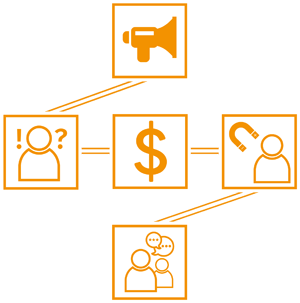
Customer Journey Mapping
Próximas Fechas
Descripción del Curso
El mapeo del viaje del cliente es una parte clave del desarrollo y la mejora de la experiencia del cliente, que es fundamental para las relaciones comerciales sostenibles a largo plazo. El proceso de mapeo proporciona una perspectiva profunda y accionable en los puntos de contacto de los clientes, que con los servicios digitales son cada vez más críticos y complejos de gestionar en nuestro mundo multicanal. El proceso se mueve detrás del enfoque de natación racional para la gestión de procesos, incluidos los aspectos emocionales.
El cliente / usuario es el centro del proceso, brindando la oportunidad de comprender cómo los servicios de soporte ayudan (o no) al cliente a alcanzar los resultados que son importantes para él.
El mapa de recorrido del cliente le permite ver el mundo a medida que su cliente experimenta el mundo. Trazaremos un recorrido del cliente que comienza y termina fuera de los límites normales del proveedor. Descubrirá qué deleita a sus clientes y descubrirá por qué deleita a sus clientes. Encontrará áreas que no agregan ningún valor, solo el costo, y deben eliminarse; aprenderá el valor de la recuperación del servicio y cómo convertir una mala experiencia en una buena le hace las delicias de su cliente, encontrará áreas en las que su personal necesita más empoderamiento para proporcionar mejores experiencias al cliente.
Resultados
• Poder comprender y recrear el viaje de extremo a extremo del cliente.
• Encontrar tareas que no agregan valor a sus clientes o sus negocios.
• Comprender cómo integrar contactos multicanal / multipunto en un viaje coherente del cliente.
• Para poder aprender cómo el empoderamiento de su personal puede mejorar los gerentes y líderes que son responsables de la prestación del servicio, el diseño del servicio y las ventas posteriores.
Quién Debería Asistir
Los gerentes y líderes que son responsables de la prestación del servicio, el diseño del servicio y las ventas posteriores.
Precios del Curso:
Precio normal: 800 CHF
Duración
1 día
Curso impartido por
Shaun West

Ingeniería de sistemas basada en COTS (CBSE)
Próximas Fechas
Descripción del Curso
La ingeniería de sistemas basada en COTS (CBSS) ofrece cambios fundamentales en la forma en que los ingenieros de sistemas hacen su trabajo. COTS: elemento comercial fuera de la plataforma, se puede definir como un artículo no desarrollado (NDI) de suministro que es comercial y se vende en cantidades sustanciales en el mercado comercial. Ejemplos de elementos COTS son: conjuntos de hardware y software, equipos y subsistemas. Las compras de COTS son alternativas a desarrollos internos tanto en el dominio militar como en el comercial.
El uso de elementos COTS ha sido obligatorio en muchos programas gubernamentales y comerciales; como tales, los productos pueden ofrecer ahorros significativos en adquisiciones, desarrollo y mantenimiento. Pero en realidad, los artículos COTS no mantienen los mismos estándares de calidad que los sistemas desarrollados por el gobierno. El desafío que COTS presenta al ingeniero de sistemas es utilizar estos procesos de ingeniería de sistemas en un entorno donde el espacio de la solución está limitado por los aspectos funcionales y físicos existentes de los componentes de COTS. Este es un proceso de diseño y un proceso de integración. El aspecto significativo introducido por COTS es que el proceso de diseño ahora está limitado por un conjunto de componentes preexistentes, que introducen la funcionalidad que puede o no requerirse en una solución de diseño específica.
Resultados
Los participantes en el curso aprenderán cómo diseñar nuevos sistemas basados en COTS y los ajustes necesarios a los principios fundamentales de la Ingeniería de Sistemas (SE) al tratar con sistemas basados en COTS. En particular, aprenderán:
• Las características y conceptos clave de CBSE
• Lecciones aprendidas, beneficios y desafíos usando CBSE
• Procesos y ciclos de vida de CBSE
• Ingeniería de requisitos para CBSE
• Prueba y evaluación para CBSE
• Arquitectura, diseño y selección para CBSE
• Cómo identificar y administrar riesgos de sistemas basados en COTS
Cómo administrar CBSE
Quién Debería Asistir
Cualquier persona involucrada en CBSE con alguna experiencia en la aplicación de SE o la Metodología de Diseño de Ingeniería puede beneficiarse de este curso. Esto puede incluir:
• Ingenieros de sistemas que usan componentes COTS para sus diseños.
• Proveedores que producen y suministran componentes COTS (hardware y software).
• Gerentes de programa y proyecto que usan o consideran usar componentes COTS.
• Profesionales gubernamentales / militares / comerciales que trabajan o consideran trabajar con sistemas basados en COTS.
Sin embargo, este curso es un curso de "Diseño avanzado de ingeniería de sistemas". Un curso básico o experiencia en SE tradicional o Metodología de diseño de ingeniería es un requisito previo para asistir a este curso.
Precios del Curso:
Inscripción anticipada: 1,620 CHF. Precio normal: 1,800 CHF
Duración
3 días
Curso impartido por
Amihud Hari

Creativity and Project Management
Próximas Fechas
Descripción del Curso
Project management is a well-proven method to deliver a specific outcome to a customer. The outcome can be a tangible product or something much less tangible (such as a change management program). The customer can be internal or external.
What projects have in common is that they are multidisciplinary and team members have to learn to work together, they need to be both creative and disciplined, and to work to a common aim. The project manager has to steer the team to deliver what is needed.
Approaches are needed that supplement the science of project management with the art of project management. This will improve project effectiveness, efficiency and success rate. Helping the team to deliver the right outcomes in the right way.
Interviews of scores of experienced major project managers and leaders of project companies revealed that PM literature and training focus on the science or process of PM. While the actual result is insured by the “art” of PM.
Our experience is strongly in agreement with the need for “art” and the “science” of PM.
Company Results in like industries or divisions within Companies are 20% - 33% higher when the right organizational climate is present. “Healthy” companies increased their earnings by 18%.
Leadership style is part of the “art” of project execution.
This course is available in three different programmes:
• A One Day Introduction Programme that introduces participants to the art of project management.
• A Two Day Immersion programme that explores the art of project management in more depth.
• A Five Day Block Week, which fully explores the depth and breadth of the art and science of project management.
The 5-Day Block Week will run on consecutive days. The first day of the block week constitutes the Introduction Progamme, and participants may choose to only attend this first day.
The first two days of the block week constitutes the Immersion Programme, and participants may choose to only attend the first two days.
Participants may also choose to complete the full 5 days.
For more information, please download our full course prospectus at the top of the 'Courses' section.
Resultados
• Understanding of the importance of both the art and science of project management
• Ability to identify when art is more important than science
• Ability to identify when science is more important than art
• To understand that ‘it is not just about process’; it is also about people. Ability to balance process with human factors.
• Ability to effectively reflect on both colleagues and one’s own experiences.
Quién Debería Asistir
• Anyone who leads projects.
• Anyone who is part of a project team
• Experienced Project Managers and team members who want to improve their effectiveness
• New hires who need to understand Project Management
Precios del Curso:
Early Bird: 2,700 CHF. Regular Rates: 3,000 CHF
Duración
5 días
Curso impartido por
Shaun West 

Jim Siler 

Systems and Systemic Requirements Engineering and Management
Próximas Fechas
Descripción del Curso
This course equips participants with the appropriate understanding of the difficulty of writing good requirements, the use of requirement management as an approach for controlling change and measuring the degree of completion of a project over the development, build, test and deliver, portion of the system and software life cycle.
The course uses a mixture of active and passive teaching styles to maximize the effectiveness of the learning opportunity. Participants will be provided with a software tool (Tiger Pro) specially developed as an educational tool with which to write and test requirements.
Resultados
• Understand the importance of well-written requirements
• Understand why requirements errors cost more to correct than other types of errors in the system development process.
• Deal with poorly written requirements.
• Recognize poorly written requirements and be able to repair them. Create clear and concise well-written requirements.
• Mitigate the effect on cost and schedule due to poorly written requirements.
Quién Debería Asistir
• Personnel who specify the development of technology-based systems.
• Engineers and programmers elucidating requirements from customers.
• Designers who work with poorly written requirements.
• Software and hardware testers who need to figureout how to test requirements.
• Acquisition managers, contract specialists.
• Other personnel performing similar roles.
Precios del Curso:
Early Bird Rates: 1,350 CHF. Regular Rates: 1,500 CHF.
Duración
9 días
Curso impartido por
Joe Kasser

Systems Engineering for Specialist Vehicles
Próximas Fechas
Descripción del Curso
This course is designed to provide an understanding of a full lifecycle systems approach to the development of specialist vehicles and integration of their systems, particularly in the military context.
This course is delivered in partnership between SE-Training and OptimaSC Independent Systems Consultancy Engineers:
http://www.optimasc.co.uk/training.html
It uses structured training and exercises to explain how to tailor and apply Systems Engineering practices to the specific challenges encountered in this environment. The course is delivered by OptimaSC Independent Systems Consultancy Engineers and is designed as a 4.5 day course.
It will cover:
• The development of vehicles, understanding of requirements, architecture and the integration of sensors, communications, automotive and other systems.
• Integration methods and evaluation strategies.
• The assessment of electrical and electronic sub-systems for platform and information management systems.
• Vulnerabilities, trends and best practice for human-machine interface, computing and software issues.
• Human factors integration and user workload issues.
• Management of Systems Engineering processes across disparate disciplines.
Resultados
For the individual this course will:
• Teach the application of Systems Engineering processes in a practical and pragmatic way that can be readily applied to real world problems.
• Provide tools to help manage the complexities of modern vehicle systems development.
For an organisation this course will:
• Allow organisations to implement Systems Engineering processes that are appropriate to their business needs.
• Reduce the technical risks of an organisation facing complex vehicle development.
The course will develop the principles of Systems Engineering in the context of developing and integrating complex vehicles. It focuses on the practicalities of applying Systems Engineering by using realistic case studies and real world practical examples.
On successful completion, delegates should be able to:
• Contribute to the planning of the development lifecycle, including phased test and acceptance activities.
• Understand interoperability issues for complex land platforms and understand the supportability of military systems through life in different contexts.
• Participate in stakeholder engagement and requirements engineering in support of assessing the needs for sub-systems and their integration with vehicles.
• Evaluate equipment fits in terms of technological risk, military capability, cost and crew utility.
• Critically evaluate the budget requirement for Size, Weight, Power, communication bandwidth, etc. of armoured fighting vehicles.
• Understand the integration of humans as a system and their influence on the systems performance.
• Identify suitable sensors, sensor interfaces and sensor fusion and communication techniques to improve situational awareness.
• Appreciate the need for electrical and electronic sub-systems.
Quién Debería Asistir
The course is suitable for anyone looking to pursue a career or advance in Systems Engineering in relation to specialist vehicles.
Precios del Curso:
Early Bird Rates: 2,700 CHF. Regular Rates: 3,000 CHF
Duración
5 días
Curso impartido por
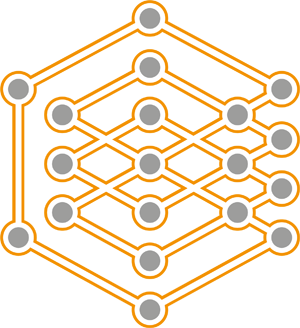
Virtual Product and Solution Development
Próximas Fechas
Descripción del Curso
This 1 day class is a combination of lectures and workshops. During the workshops we will work on your implementation and roll-out plan. The intention is to provide the audience with an overall understanding of the topic rather than deep-dive into its complexity. This course is well suited as well for small and medium-sized businesses.
Resultados
• Understand the capabilities, application fields and limitations of numerical modelling and simulations.
• Know the different tools and methods for standard industry purposes such as System- Modelling, simple Physical Models, Multi-Body-, Multi-Physics, Finite-Element (Structure FEM and Fluid CFD) Simulation .
• Understand how these different tools and methods should be combined and integrated into the development process.
• Be able to create a holistic and strategic implementation plan into your organisation.
• Be able to balance investments with expected improvements.
Quién Debería Asistir
• Managers and engineers who are responsible to reduce product development time, cost and risks.
• Managers and engineers who want to include modelling and simulation into their development process.
• Simulation engineers who are interested in the bigger picture.
• Everybody in research and development who already thought that simulation might be a good idea but did not know where to start.
Precios del Curso:
Rate: 800 CHF
Duración
1 día
Curso impartido por
Thomas Meenken

Future Proofing You - Staying Relevant in the Age of Innovation
Próximas Fechas
Descripción del Curso
Today’s industry has taken us from simple digitalisation of products and services to an overwhelming demand for innovation. Whether you work in Design, Product Development, Project / Organisational Management or business support, or and even in an Education function, the demands on time as well as skills have grown enormously over the past years.
Over the 2-day residential programme, we will be working with the principles and process of ‘Slowing Down to Speed Up’ (Schramer 2007). Through the deeper listening that the process provides, you will be able to identify where you are right now and help you to envision where you want to be – personally and professionally.
You will begin to reveal your current mindset, habits and behaviours that have led you to where you are. You will be able to distinguish those that continue to support you to materialise your vision and those that do not. In so doing, you will be able to make personal and professional choices that will be most fulfilling for you as an individual, and beneficial for your organisation.
Establishing work-life balance and fulfilment is essential for the individual, and beneficial for companies and organisations. (Nanette Fondas 2014).
The tools and techniques you will learn in this programme will support you in both meeting the demands of industry and maintaining a work-life balance that works for you.
Upon completing the programme, there will be a follow-up structure with the facilitators which will provide the opportunity to:
• Share your progress on your individual journey following the programme
• Agree on any further actions to support your intentions
• Identify the need for further support (e.g. coaching), if beneficial.
Resultados
You will develop:
- Clarity about your professional identity and your core values
• A clear set of commitments to fulfill your personal and professional vision
• An enhanced capacity for sense-making of complex systems
• A tool kit for being more present and effective in groups and teams
• A marked increase in self-awareness of one’s talents and strengths and the confidence to leverage them
• The ability to communicate more deeply through storytelling
• The ability to initiate and engage in courageous conversations.
Quién Debería Asistir
Systems Thinkers, Change Managers and Engineering Professionals who
• are in question about how they want to take their career forward
• wish to move laterally within the industry
• who wish to illicit radical and systemic change through meaningful leadership
Precios del Curso:
Early Bird Rates: 1,350 CHF. Regular Rates: 1,500 CHF
Duración
2 días
Curso impartido por
Andrew Hall 
Rudy Villarreal 
.png)
CPRE Foundation
Próximas Fechas
Descripción del Curso
Course Overview: The programme provides a comprehensive introduction to the fundamentals of Requirements Engineering, focusing on the foundational understanding of Requirements Engineering techniques, methods and application and the basic theoretical frameworks available.
Resultados
Be optimally prepared to take the CPRE Foundational level examination
Acquire familiarity with common terminology around Requirements Engineering, Requirements Management and Business Analysis
Understand the basic techniques and methods for Requirements Engineering and their applications
Acquire familiarity with the most established notations for Requirements Engineering
Quién Debería Asistir
Systems Engineers
Requirements Engineers
Project Managers
Business Analysts
Product Designers and Developers
Integration, Verification & Validation Engineers
Precios del Curso:
Early Bird: 1,620 CHF; Regular: 1,800 CHF
Duración
3 días
Curso impartido por
Marco Di Maio 


Oliver Fels 

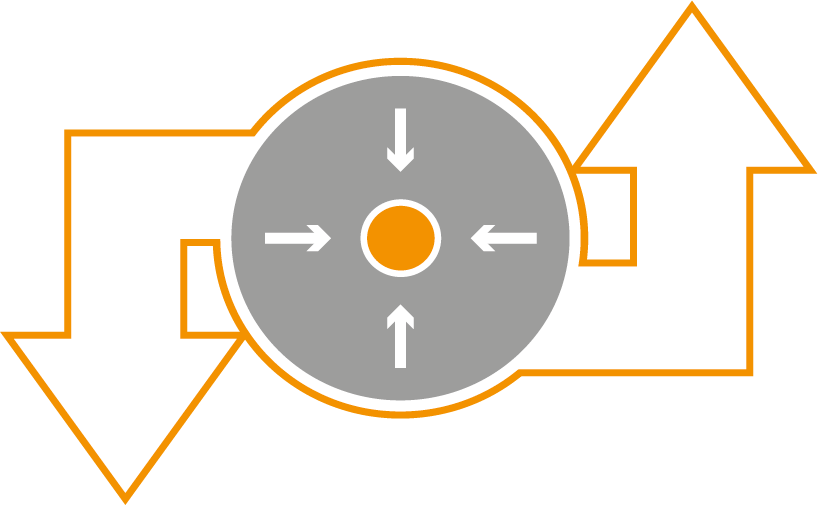
CPRE Agile Requirements Engineering Workshop
Próximas Fechas
Descripción del Curso
Requirements Engineering principles are comprehensively discussed and are contextualised to be valid for any system: embedded systsm, safety-critical systems and traditional information systems. At the same time, there will also be scope to look at individual cases brought forth by the participants and apply the learned principles to those particularities.
This workshop is not based on any specific software development approach or process, and is intended to be applicable across domains.
Resultados
Know the definition of Agile Requirements Engineering
Understand the goals of Agile Requirements Engineering
Know who is responsible for good requirements within SCRUM
Be able to ensure a clean project start
Be able to handle functional requirements, quality requirements and constraints
Prioritise requirements based on business value, risk, dependencies and relative effort
Quién Debería Asistir
Requirements Engineers
Business Analysts
Business Engineers
Organisation Designers
Precios del Curso:
Early Bird: 1,350 CHF; Regular: 1,500 CHF
Duración
2 días
Curso impartido por
Marco Di Maio 


Oliver Fels 

.png)
CPRE Elicitation
Próximas Fechas
Descripción del Curso
Requirements Engineering principles in direct reference to elicitation and consolidation are comprehensively discussed and are contextualised to be valid for any system: embedded systsm, safety-critical systems and traditional information systems. At the same time, there will also be scope to look at individual cases brought forth by the participants and apply the learned principles to those particularities.
This workshop is not based on any specific software development approach or process, and is intended to be applicable across domains.
Resultados
Understand and apply the skills of a Requirements Engineer.
Apply a framework for structuring and manageing requirements elicitation and conflict resolution.
Apply techniques to identify, classify and manage documents, requirements and stakeholders.
Apply elicitation techniques.
Apply techniques for identifying and resolving conflicting requirements.
Quién Debería Asistir
Requirements Engineers
Business Analysts
Business Engineers
Organisation Designers
Precios del Curso:
Early Bird: 1,620 CHF; Regular: 1,800 CHF
Duración
3 días
Curso impartido por
Marco Di Maio 


Oliver Fels 

.png)
CPRE Advanced Modelling
Próximas Fechas
Descripción del Curso
The aim of the workshop is to convey knowledge about effective and useful modelling of requirements. You will gain a deeper understanding of how to apply modelling techniques to facilitate better communication, manage system complexity and enable a greater degree of automation in system development activities.
Resultados
Understand basic principles of Requirements Modelling
Gain ability to use context modelling, to include the use of system boundaries, context boundaries and context diagrams.
Apply the information structure view in requirements modelling, including UML class diagrams, class attributes, data types, binary association, aggregation, composition, generalisation and specialisation.
Apply dynamic views and scenario modelling in requirements modelling inlcuding use case, use case diagram, use case model, data flow, control flow, object flow, data flow diagram, use case specification, activity diagram, function activity, action, state, state machine, event, hierarchisation, and concurrency.
Quién Debería Asistir
Systems Engineers
Requirements Engineers
Project Managers
Business Analysts
Product Designers and Developers
Integration, Verification & Validation Engineers
Precios del Curso:
Early Bird: 1,620 CHF; Regular: 1,800 CHF
Duración
3 días
Curso impartido por
Marco Di Maio 


Oliver Fels 


Basics of Power Grid Operation and Control
Próximas Fechas
Descripción del Curso
Perhaps more than other industries, engineering for energy has become an increasingly complex process with demands for digitalisation and interconnected services and products in increasing. Thus, a fundamental understanding of utitilies applications and energy digitalisation is essential for all systems engineers working in this domain.
The course provides the basics of energy systems, power grid and energy market operation principles, processes, models and trends, hence allowing participants to understand the development of the energy sector in the past years and in the near future. It also allows to understand the reasons and impacts of energy systems architectural changes.
Resultados
• Know the basics of power systems organisation, roles and their relationships.
• Gain a holistic view of processes in power grids.
• To understand the development scenarios and their impact on the energy system.
Quién Debería Asistir
• Managers
• Project Managers
• System Operators
• Software Engineers
• Software Architects
• Product Owners
Attendees must have basic training in Systems Engineering (e.g. SE Foundations).
Precios del Curso:
Regular: 800 CHF
Duración
1 día
Curso impartido por
Dmitri Tchoubraev

Substations Automation Systems
Próximas Fechas
Descripción del Curso
Perhaps more than other industries, engineering for energy has become an increasingly complex process with demands for digitalisation and interconnected services and products in increasing. Thus, a fundamental understanding of utitilies applications and energy digitalisation is essential for all systems engineers working in this domain.
The course provides the basics of substations’ and substation automation systems architecture and components, their role in power grid operation. It also shows the basics of data acquisition, communication and control for SAS systems, and gives an overview of the main telecommunication and modelling standards. Providing the main information about Digital Substations, it allows to understand the impacts, chances and risks digitalisation brings to the SAS.
Resultados
• Know the role of substations in a power system.
• Understand the essential components of substations.
• Reflect on the architecture of the system communications.
• Outline the architecture of information exchange and data collection from consumer installations.
• Gain an overview of emerging technologies and key challenges.
• Understand the basics of digital substations, interfaces and connectivity risks.
• Understand the role of cyber-security for substation automation.
Quién Debería Asistir
• Project Managers
• System Operators
• Software Engineers
• Software Architects
• Product Owners
Attendees must have basic training in Systems Engineering (e.g. SE Foundations).
Precios del Curso:
Regular: 800 CHF
Duración
1 día
Curso impartido por
Dmitri Tchoubraev
.png)
Power System Operations IT Systems (DSO and TSO)
Próximas Fechas
Descripción del Curso
Perhaps more than other industries, engineering for energy has become an increasingly complex process with demands for digitalisation and interconnected services and products in increasing. Thus, a fundamental understanding of utitilies applications and energy digitalisation is essential for all systems engineers working in this domain.
The course provides the overview of the applications, used by power utilities (both transmission system operators – TSO, and distribution system operators – DSO). It also shows the basics of data acquisition, communication and control for electrical grids SCADA systems, and gives an overview of the main telecommunication and modelling standards.
Resultados
• Know common architectures.
• Understand the application environment of a power grid operator (TSO and DSO).
• Know the tasks and interaction of individual applications of grid and market operations.
• Know the tasks of network operation SCADA/EMS/DMS systems and corresponding solution approaches.
• Know the tasks of frequency and load control systems.
• Understand the most important solution-based approaches and challenges for individual application categories.
• Understand the role of service-based architecture and enterprise integration for the IT systems of the future.
• Understand the role of cybersecurity for the IT/OT applications.
Quién Debería Asistir
• Project Managers
• System Operators
• Software Engineers
• Product Owners
Attendees must have basic training in Systems Engineering (e.g. SE Foundations).
Precios del Curso:
Regular: 800 CHF
Duración
1 día
Curso impartido por
Dmitri Tchoubraev

Digitalisation, Automation and End-to-End Data and Process Integration
Próximas Fechas
Descripción del Curso
Perhaps more than other industries, engineering for energy has become an increasingly complex process with demands for digitalisation and interconnected services and products in increasing. Thus, a fundamental understanding of utitilies applications and energy digitalisation is essential for all systems engineers working in this domain.
The course provides the basics of digitalisation, automation and integration in the environment of power utilities and comparable industries (different types of network operators – transport, gas, railway, etc.). It shows the approaches, that can be taken for internal enterprise data integration and the ways, the utilities in Europe shall be integrated. It also shares some best practice approaches and discusses their chances and risks.
Resultados
• Understand the challenges of application integration for power grid operators (TSO, DSO) and similar industries
• Know the main integration approaches, tools and solutions
• Distinguish between different kinds of customers and corresponding process automation solutions
• Know the requirements towards TSO-centric integration (standards, media, processes)
• Understand the role of cyber-security in the IT / OT integration
Quién Debería Asistir
• Project Managers
• System Operators
• Software Engineers
• Software Architects
• Product Owners
Attendees must have basic training in Systems Engineering (e.g. SE Foundations).
Precios del Curso:
Regular: 800 CHF
Duración
1 día
Curso impartido por
Dmitri Tchoubraev

Basics of Enterprise and Software Architectures
Próximas Fechas
Descripción del Curso
Perhaps more than other industries, engineering for energy has become an increasingly complex process with demands for digitalisation and interconnected services and products in increasing. Thus, a fundamental understanding of utitilies applications and energy digitalisation is essential for all systems engineers working in this domain.
The course provides the basics of energy systems, power grid and energy market operation principles, processes, models and trends, hence allowing participants to understand the development of the energy sector in the past years and in the near future. It also allows to understand the reasons and impacts energy systems architectural changes.
Resultados
• Gain a brief and practice-oriented overview of the basics of the Enterprise Architecture and related topics.
• Gain new insights to generate your own ideas.
• Understand and apply best practices that allow productive discussion of problems with other suppliers (including non-electrical utilities).
• Understand how to structure one’s business in an effective yet standard compliant way.
• Define the business and IT-applications landscape so that you, your management and your suppliers (also new ones) can understand it.
• Apply the “out-of-TSO/DSO-box-thinking”
Quién Debería Asistir
• Project Managers
• System Operators
• Software Engineers
• Product Owners
Attendees must have basic training in Systems Engineering (e.g. SE Foundations).
Precios del Curso:
Regular: 800 CHF
Duración
1 día
Curso impartido por
Dmitri Tchoubraev
New Drivers for Energy Utilities
Próximas Fechas
Descripción del Curso
While Energy Utilities ought to guarantee the stability of the power system, they are subject to severe and accelerated change, driven by global trends such as the:
- transformation of the energy system to carbon-free
• coordination and harmonization of system and grid operation
• convergence towards international electricity markets
• emerging sector-coupled, multiphysics operated system
• impact of digitalization
Digital trends, both in the form of utility-internal enablers and challenging external factors, are playing a significant role in mastering this change.
The energy companies’ ability to utilize the potential of new digital technologies is restricted due to the mission-critical nature of their business, a highly complicated systems mix and a shortage of technological courage by the main system suppliers.
What are the possible outcome scenarios, and what does that mean for the utilities’ digital strategy?
Resultados
In this presentation, we will discuss the main trends and challenges the Energy Utilities are facing and their possible impact on the digital and data strategies and architectures.
These include:
- The main trends influencing the energy sector
• The role of digitalization for Energy Utilities
• Possible routes moving forward
Quién Debería Asistir
This webinar is for anyone who is…
- Responsible for decision making
• In a lead role within Data, Digital and IT/OT teams
• In a role within Business, Enterprise or IT Architect
• Interested in the future of digitalization and application landscape
Limited spaces available. Save your seat and register now for FREE.
Precios del Curso:
FREE
Curso impartido por
Dmitri Tchoubraev
Reducing the Cost of Requirements
Próximas Fechas
Precios del Curso:
Curso impartido por
Marco Di Maio 


Colin Hood 

Software Craftsmanship
Próximas Fechas
Precios del Curso:
Curso impartido por
MBSE Adoption: Empowering the Human Factors of MBSE Adoption Using ADKAR
Próximas Fechas
Precios del Curso:
Curso impartido por
Mohammad Chami
WEBINAR: Customer Journey Mapping - Moving Beyond the User
Próximas Fechas
Precios del Curso:
Curso impartido por
Shaun West
The Self and Social Competence course provides theoretical background and hands-on practical exercises across various “soft skills” topics that are pertinent to working in teams, especially tailored to the context…

Self and Social Competence for Engineers
Próximas Fechas
Descripción del Curso
The Self and Social Competence course provides theoretical background and hands-on practical exercises across various “soft skills” topics that are pertinent to working in teams, especially tailored to the context of Engineers.
We all know technical ability is essential to every system engineer, but soft skills are just as valuable if you want to become an asset in the workplace. They are the characteristics imperative to building successful relationships and the attributes which empower you to make decisions and give you the confidence to manage yourself and inspire others.
Soft skills encompass a vast range of skills from communication, innovation, conflict resolution, adaptability, collaboration and motivation - all of which are vital in negotiating the dynamic engineering landscape. Yet, these are often overlooked in favour of technical learning, leaving many with a void of skills, and the opportunity to boost work practices.
Teams are complex systems, and so they must be managed as such.
Over two full days, we will cover the following areas:
- Self-management, self-competence and social competence.
- Understanding how our mental models and cognitive biases affect our actions.
• Refining and improving your communication style.
- How to have more successful interactions at work (and at home).
- Addressing conflicts and assessing ways to best resolve them.
- Identifying our individual stress coping techniques and discovering concrete ways to improve our energy balance in the long-term.
Resultados
Upon completion of the programme, participants will:
- gain awareness of their own mental models and cognitive biases
- be able to identify certain communication patterns in themselves and others, and thus be empowered to respond constructively.
- be confident in managing conflicts and in a productive manner.
- have developed conscious awareness of their own stress coping strategies, and the tools and techniques to navigate them for improved communication and overall wellbeing.
Quién Debería Asistir
Research and Development Engineers, Project Managers, Team Leaders and Individuals who:
- are interested in more constructive social interactions
- are looking to improve their stakeholder management skills
- are looking to enhance their team's spirit and engagement
Precios del Curso:
Early Bird: 1,350 CHF | Regular: 1,500 CHF
Duración
2 días
Curso impartido por
Sandra Roth
This intensive 5-day course is delivered by four experts, each with a distinct range of knowledge, skills, and experience, meaning you will gain a diverse and comprehensive view of advanced…
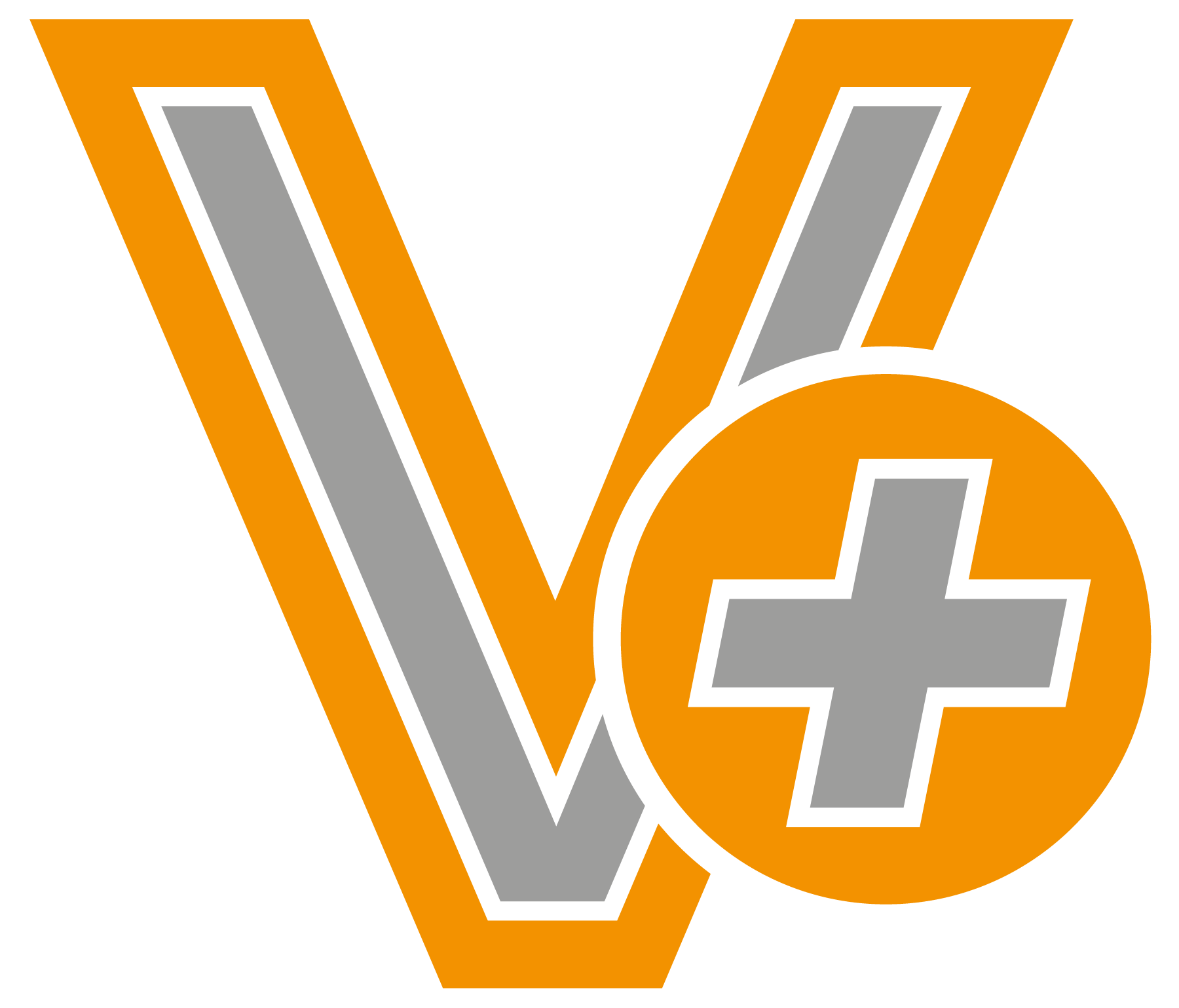
SE Advanced
Próximas Fechas
Descripción del Curso
This intensive 5-day course is delivered by four experts, each with a distinct range of knowledge, skills, and experience, meaning you will gain a diverse and comprehensive view of advanced SE, and an unparalleled, interactive learning experience.
This course has been devised to compliment your work within complex product development as you take on more responsibility and mature into more senior roles.
Resultados
• Identify common attributes and causes of complexity.
- Master the application of Systems Engineering methodologies to complex system developments.
- Master key technical management competences required for matrix/project leaders.
- Apply soft skills applicable for technical matrix/project leaders.
- In a moderated workshop develop sustainable solutions in the System of Systems context.
Quién Debería Asistir
Intended for those who have completed an SE Foundations course or those looking to progress to/or currently in technical matrix leadership positions.
Precios del Curso:
Early Bird: 3375 CHF | Regular: 3750 CHF
Duración
5 días
Curso impartido por
Seb Klabes 

Mike Johnson 
Marco Di Maio 


Sandra Roth 

This three-day intermediate level course covers the WHY, WHAT and HOW of Systems Architecting by teaching the following:
Understanding the WHY: The need for employing architectures to help cope with…

Systems Architecting Intermediate level
Próximas Fechas
23.10.2024 - 25.10.2024, Zurich
Descripción del Curso
This three-day intermediate level course covers the WHY, WHAT and HOW of Systems Architecting by teaching the following:
Understanding the WHY: The need for employing architectures to help cope with the overwhelming nature of complexity.
Explaining the WHAT: Architectures provide different system perspectives and are ideal entry points to effectively structure your information.
Introducing HOW: Modelling System Architectures using the COFLP Framework: Contextual/Operational/Functional/Physical/Logical.
- Top-Down modelling of Operations (Missions/Scenarios/Use Cases) yields clarity and allows for re-use of Functions;
- The Functional Architecture elicits Requirements: Functions = Functional RQ; Object Flows = Performance
- The Logical Architecture makes high-level technology and responsibility choices providing the means for identifying Operational & Functional IF
- The Physical Architecture is different in nature, as its elements have to match the Functional Specs which typically happens at the lowest level (bottom-up). They then have to be integrated taking into account all physical constraints concentrating on the optimum (co-)location.
Resultados
• What is systems architecture and how does it differ from the system design?
• How does it relate to Systems and Holistic Thinking?
• What makes a good architecture: how many architectures do we need?
• What makes up a good architecture so important in the context of complex systems?
• Why are Interfaces such a fundamental concept in Systems Architectures?
• What is the relationship between the Operational Architecture and systems control?
• Can/should we develop the architectures for a system and its Digital Twin together?
• How does it help with decision making for an uncertain development environment?
• Why is it important to develop variants and provide variation points and how do they relate to the interfaces?
• What is a logical and repeatable methodology to develop architectures?
• How can we model the architectures? Do we need MBSE? Do we need tools?
• How can we ensure that the models are consistent and connected?
• Where can one customise the architectures?
• When is an agile approach permissible, when should you take extreme caution?
• How do architectures help developing the system for safety, reliability, availability, maintainability, and inspectability?
• Why is it important to separate the system’s (sometimes called “logical”) from the physical architectures?
• How do all architecture map to the others? Why is mapping a powerful mechanism in developing for complexity?
• What is the timing relationship between the various system (logical) architectures and the physical design?
• What are the main skills of a senior Systems Architect?
Quién Debería Asistir
Systems Engineers, Lead/Senior Engineers, Systems Analysts and Systems Architects.
Precios del Curso:
Early Bird: 2025 CHF | Regular: 2250 CHF
Duración
3 días
Curso impartido por
Marco Di Maio

FREE WEBINAR
Próximas Fechas
Precios del Curso:
Duración
0.1 día
Curso impartido por
Patrick Link
EU law requires that controllers put in place measures to effectively implement data protection principles and to integrate the necessary safeguards to meet the requirements of the regulation and protect…

Design for Privacy
Próximas Fechas
Descripción del Curso
EU law requires that controllers put in place measures to effectively implement data protection principles and to integrate the necessary safeguards to meet the requirements of the regulation and protect the rights of data subjects.
These measures should be implemented both at the time of processing and when determining the means for processing. In implementing these measures, the controller needs to take into account the state of the art, the costs of implementation, the nature, scope and purposes of personal data processing and the risks and severity for the rights and freedoms of the data subject.
In addition, controllers and processors are obliged to design the data processing in such a way as to prevent or minimise the risk of interference with those rights and freedoms and implement technical and organisational measures which take into account the implications of the right to the protection of personal data at all stages of the data processing.
We will focus on the following principles:
- Lawfulness of processing & Fairness of Processing & Transparency of Processing
- The principle of purpose limitation
- The data minimisation principle
- The Data accuracy principle
- The Storage limitation Principle
- The Data security principle
- The Accountability principle
Resultados
At the completion of training, the trainee will be able to achieve the following outcomes:
- GDPR principals and rules related with Data Privacy by Design
- How to approach to each process within System engineering of a new or existing platform.
- How to make Risk Analysis of each process which contains vital data such as Personal Data.
- How to mitigate the process with high risk to low risk within any platform existing and or new.
- How to define / create Technical and organizational Measures to protect the vital data which is both Company confidential Data and Personal Data according to GDPR.
- How to make decision of putting the processes under right legal basis according to GDPR.
- How to make the platforms secured especially in case of Cyber-attacks and attacks from Internal organization.
Quién Debería Asistir
• Engineers
• Product developers
• Programme, software or website designers
• Other managers responsible the development of products and services where data privacy is critical.
Precios del Curso:
Early Bird: 1350 CHF | Regular: 1500 CHF
Duración
2 días
Curso impartido por
Hakan Hasserbetci
This course will provide attendees with a solid foundation in the design of secure systems and products. We will define what cyber security means in a product development context and…

Design for Security
Próximas Fechas
Descripción del Curso
This course will provide attendees with a solid foundation in the design of secure systems and products. We will define what cyber security means in a product development context and how it contributes to safe and reliable operation. To this end, we will need to clarify how security engineering differs from traditional safety and reliability engineering and how it is embedded into the overall systems engineering context. Although the entire product life cycle will be covered, emphasis will be put on the design and development phases, as these are the most important ones from the cyber security perspective. We will look into how to define a product security context and how to derive basic security architecture principles from it. We will then proceed with developing security risk assessment techniques and apply them to the system under design, i.e. we will elaborate on how risk assessment outcomes will result in security requirements that will need to be implemented in the system. Finally, we will discuss how security properties of a system can be validated and verified, both during the development and after entry into service. The course will focus on dependable systems in order to emphasize the intimate relation between safety and security.
Resultados
• Gain a good understanding of dependable systems and the role of security in their design and development
• Gain an understanding about the security implications of a system design
• Assess the business and project risks associated with specific design decisions
• Estimate the cost of security incidents
• For all stages of the product life-cycle, be able to outline the key elements
associated with “designing for security”
• Have an overview of the tools and techniques employed by cyber security
specialists when adopting a risk-based approach to security
• Have an appreciation of the security issues associated with software, human/system interactions, novel technologies, complex system of systems and autonomy
Quién Debería Asistir
• Design engineers needing to improve or refresh their product security knowledge to enhance their integration within a Systems Engineering team
• Safety engineers who need work together with security engineers on a
common system design and have not yet been exposed to the topic
• Project and program managers wishing to understand how poor security
engineering can lead to prohibitive business and project risks
• Engineering managers wishing to improve their specialist knowledge order to gain the most from their security team
• Business leaders wishing to understand their legal and moral responsibilities
to ensure that products and systems are designed, commissioned and operated safely and securely
Precios del Curso:
Early Bird: 1350 CHF | Regular: 1500 CHF
Duración
2 días
Curso impartido por
Stephan Marwedel
Learn the basics of the Polarion® ALM™ platform. Understand the philosophy of Polarion® ALM™ and what potential the systematic use of the tool offers for your requirements management.
…

Polarion Basics
Próximas Fechas
Descripción del Curso
Learn the basics of the Polarion® ALM™ platform. Understand the philosophy of Polarion® ALM™ and what potential the systematic use of the tool offers for your requirements management.
Resultados
Learn to create Polarion® work items, filtering and searching, linking and team collaboration.
• What are the benefits of Polarion®?
• General introduction to Polarion®
• Working with work items
• Working with documents
Quién Debería Asistir
• Requirements Engineers
• System Engineers
• Project managers and other users of Polarion® ALM™.
In addition, the offer is directed at all ALM tool interested parties who would like to get to know the handling of an ALM system and try it out for themselves.
Precios del Curso:
Regular: 800 CHF
Duración
1 día
Curso impartido por
SE-Training Partner Company
The Practical MBSE and SysML course provides a combination of the fundamentals of MBSE and the practical aspects of the adoption of MBSE with its concepts and key enablers for…

Practical MBSE & SysML
Próximas Fechas
Descripción del Curso
The Practical MBSE and SysML course provides a combination of the fundamentals of MBSE and the practical aspects of the adoption of MBSE with its concepts and key enablers for successful MBSE adoption.
The course first deals with explaining the why of MBSE based on the participants challenges with actual practices. Next, the elements of the MBSE adoption, i.e., process, method, language, and tool are explained and demonstrated with several practical exercises. Particularly, the how, i.e., the method element and its development is trained based on the participants objectives without promoting any specific modelling tool.
Finally, the course wraps up with a discussion of the human-factors of MBSE adoption and the business factors for defining, developing and deploying MBSE in real-world applications. Including what comes after MBSE is deployed to ensure a long-term strategical MBSE adoption.
The course includes individual exercises, as well as group exercises with a daily interactive workshop covering detailed MBSE use cases.
The course can be attended exclusively at a Customer's site or in one of our regular external course venues, where there's a healthy mixture of engineers from different backgrounds.
No prior training is required.
Resultados
• What is MBSE, modelling language, modelling method and modelling tool?
• SysML basic concepts, elements, relations, and diagrams
• Why should we use MBSE and how it manages system engineering challenges
• How to start with MBSE, what to do and what not to do
• How to develop or customize the aimed MBSE method
• The human-factor aspects related to MBSE adoption
• How to ensure the delivery of valuable and usable system models
Quién Debería Asistir
All engineers, particularly systems and software engineers/architects or those who work with requirements, concept description, traceability and aim at improving how they analyse, design, and manage their systems.
All managers, particularly those who aim at deploying MBSE to reduce design time, improve product quality, manage complex products, save cost and ensure reusability.
Precios del Curso:
Early Bird Rates: 1,890 CHF. Regular Rates: 2,100 CHF
Duración
3 días
Curso impartido por
Mohammad Chami

Workshop for Complex Problem Solving
Próximas Fechas
Descripción del Curso
Solving complex problems is one of the most urgently required skills in our current time. As technologies become more advanced, the possible solutions created by them become more and more complex to understand, design for and successfully implement. This can be seen across multiple industries and is causing significant front line issues to reliability, maintenance, project cost, product performance and overall schedules.
In this one-day course a systematic methodological process for applying to technical complex problem solving shall be taught through an interactive workshop. Each stage of the process shall be expanded to include real-world examples in addition to various approaches for tailoring and applying the process.
OUR SYSTEMS ENGINEERING BASIS
1. Stakeholder analysis is a deep ongoing discipline. It is far in advance of simpler user/customer considerations, and a key to dealing with complex systems.
2. System and Project stakeholder improvement Objectives all can, and must be, specified quantitatively, and in enough detail to handle the complexity of the stakeholders. These quantified objectives form the logical and clear basis for judging all strategies and architectures.
3. Multiple costs, both short and long term, are resource constraints, that need articulation and must be used to judge and prioritize all potential strategies and architecture.
4. Multidimensional Analysis of multiple design strategies, against multiple stakeholder objectives and costs using a Value Impact Estimation table is a powerful way to keep track of very complex systems at multiple related levels of concern.
5. Decomposition of complex systems: we will show number of advanced methods for decomposing complex problems and projects, so that we can create a value prioritised stream of cumulative value delivery, for early results, for intelligibility of complex system. This is advanced agile engineering
OUR WORKSHOP BASIS:
We will choose a sample classroom problem to work on, possibly one which participants think is interesting or useful
We will divide into 2 person teams, who will work on part of the problem, and we will pool the results of all teams in one coherent dynamic model of specification.
We will use ValPlan as an app (but everything can be done in any word processor or spreadsheet) and use Planguage as a well defined free way to articulate ideas.
We will do the best we can to teach as much as we can in the classroom day. But we will probably only manage to sample 20-40 of the well over 100 specific tools in the books.
We hope that is enough to light your fire, and enable you to bring these ideas into your personal work and to share with your personal environment.
The technologies are all free forever, and can be spread or used as much as you like. Everthing is based open literature.
The methods have been used, researched, and documented, on small and very large scale at well known multinational companies such as Intel, HP, Boeing, Ericsson, Philips, Medtronic and many
others. Including several Swiss Banks! The methods are proven scale free, and they can be gradually adopted to improve your current systems engineering culture, as they prove themselves useful.
ALL PARTICIPANTS RECEIVE THE FOLLOWING:
1. Stakeholder Engineering (digital book)
2. Value Requirements. (Digital book)
3. System Engineering Architecture (digital book)
4. Competitive Engineering (digital book)
Resultados
• Understanding and application of many Systematic methodological processes for applying to technical complex problem solving
• Ability and motivation to continue learning more based on the included written books.
Quién Debería Asistir
ALL roles dealing with Complex technical problems. Notably:
- Systems Engineers
• Technical Leaders
• Project Managers
• Requirements Engineers
• System Architects
• Product Owners
• Project Managers
• Development Engineers
• Verification and Validation Engineers
• Quality Engineers
Precios del Curso:
Regular: 800 CHF
Duración
1 día
Curso impartido por
Tom Gilb
Organisations need to establish requirements, regardless of their business methods or tool selections. Requirements have to capture the essence of what it is expected from the product or service to…

REQUIREMENTS – The GOOD, the BAD and the UGLY
Próximas Fechas
Descripción del Curso
Organisations need to establish requirements, regardless of their business methods or tool selections. Requirements have to capture the essence of what it is expected from the product or service to be supplied. To have any enduring value, requirements need to be managed and maintained throughout the project lifecycle to ensure that what is achieved at every stage can be demonstrated expressly to meet the Customer’s needs. The techniques used to elicit the requirements at the start of the project lifecycle and the quality of their initial definition have a proven influence on the success, or failure, of the developed product or service.
The objective of the workshop is to understand the key steps in engineering requirements throughout the project lifecycle and to enhance the capability of individual engineers to recognise and create effective requirements.
Resultados
• Understand the key steps in determining and managing requirements
- Apply effective techniques that help at each step of the process
- Know how to write good requirements and how to avoid writing poor requirements
- Understand a case study as a practical example to demonstrate effective techniques
Quién Debería Asistir
• Project Engineering Managers and Project Engineers who are responsible for creating and analysing requirements
- Personnel from all functional areas who are involved in defining and agreeing the requirements
- Functional personnel who are responsible for reviewing requirements and participating in design reviews
- Personnel involved in acceptance activities
- Personnel from all functional areas who use the defined requirements set to guide their activities throughout the project lifecycle
Precios del Curso:
Early Bird: 2025 CHF | Regular: 2250 CHF
Duración
3 días
Curso impartido por
Gordon Woods
The effective Management of Requirements sits alongside the effective management of Customer Acceptance as the two key process areas that define our interfaces with the Customer and user community. They…
.png)
REQUIREMENTS – Where Customer and Business Needs Meet
Próximas Fechas
Descripción del Curso
The effective Management of Requirements sits alongside the effective management of Customer Acceptance as the two key process areas that define our interfaces with the Customer and user community. They also determine the context for all the engineering activities on your projects. Requirements and Acceptance can never be separated as independent activities and they also have strong links to most other process areas. There is no universal solution to the problem of how to manage requirements effectively, however, there are techniques and methodologies that will help if used appropriately. The only effective Requirements Management process is one that is tailored to the style of your business and to your Customer.
The objective of the workshop is to enhance your capability to define, review, improve and implement effective processes for the management of requirements. The workshop will cover the principles of effective Requirements Management but will not address specific toolsets that may be used to implement the process for an individual project or business.
Included within the workshop are the following:
- Why requirements need to be managed
- The scope of requirements
- Where requirements come from
- What drives the need to tailor Requirements Management processes
- The classic problems of managing requirements
Resultados
• Understand the benefits of an effective Requirements Management process
- Apply many effective approaches to the classic Requirements Management problems
- Understand the aspects of a Requirements Management process that need to be tailored to the Business or project
Quién Debería Asistir
• Project Engineering Managers and Project Managers who are responsible for defining the Requirements Management Processes
- Functional personnel who are responsible for engineering governance, assurance or process compliance
- Personnel from all functional areas who are involved in the business winning phases of the project lifecycle when the requirements are evolving
- Personnel from all functional areas who are involved in managing the relationship with the Customer and end user community throughout the project lifecycle
- Project personnel who are implementing the Requirements Management process and participating in design reviews
Precios del Curso:
Early Bird: 2025 CHF | Regular: 2250 CHF
Duración
3 días
Curso impartido por
Gordon Woods
Systems Engineering Overview
Próximas Fechas
Precios del Curso:
Duración
0.5 día
Curso impartido por
Mike Johnson
Are you curious about the role of a Systems Engineer? How are they different to other engineers and what benefits do they bring to teams and organisations? Are you considering…

Systems Engineering: In a nutshell
Próximas Fechas
Descripción del Curso
Are you curious about the role of a Systems Engineer? How are they different to other engineers and what benefits do they bring to teams and organisations? Are you considering employing a systems engineer but would like to have more clarity about the role first?
Or perhaps you would like to understand the discipline of Systems Engineering a little more? What is it and why does your company need it? How can it enhance complex product design, development and realisation? How does Systems Engineering relate to your department?
If these are the questions that you would like the answers to then let Systems Engineering expert Mike Johnson help. He will explain the who’s, what’s and why’s of Systems Engineering in a straightforward way. By giving you real-life examples of how Systems Engineering can add value to your organisation and efficiency to your projects (think improved processes, revenue targets, quality & performance) you will have a clear understanding of both the role and the discipline.
Mike will also discuss pointers to include in your job advertisements for Systems Engineers' positions as well as highlight which qualifications, experience and skills make a well-rounded Systems Engineer.
You will also learn some handy tips for interview questions so you can feel confident in selecting a suitable candidate for your team/organisation.
This is an interactive course with opportunities to ask questions throughout.
Resultados
• Understand the basic principles of the Systems Engineering discipline benefiting the adjacent departments such as, Human Resources, Quality, Procurement, Finance, Operations and Support.
• Understand the value of Systems Engineering.
• Understand the role and responsibilities of a Systems Engineer.
• Understand the value a Systems Engineer can add to a team or organisation.
• Understand how to attract a quality Systems Engineer to your company when advertising for a position.
• Know what to ask in an interview.
• Know what to look for when selecting a candidate.
Quién Debería Asistir
• Human Resources
• Quality engineering Department
• Finance and Procurement Departments
• Operations and Support Departments
Precios del Curso:
Early Bird: 360 CHF | Regular: 400 CHF
Duración
1.0 día
Curso impartido por
Mike Johnson
Learn how to comply with the General Data Protection Regulation (GDPR) and the Federal Data Protection Act (FADP) in this two-day course with data protection expert Hakan Hasserbetci.
…

Compliance with the Swiss Data Privacy Act & GDPR
Próximas Fechas
Descripción del Curso
Learn how to comply with the General Data Protection Regulation (GDPR) and the Federal Data Protection Act (FADP) in this two-day course with data protection expert Hakan Hasserbetci.
From September 1, 2023, all Swiss companies must implement the new Data Protection Act (nFADP). For companies that are not already compliant to the 2018 European General Data Protection Regulation (GDPR), compliance with the new Swiss law could be a lengthy and complex process requiring inputs from legal and technical experts within data protection and privacy.
Therefore, with less than a year to implement these new requirements, companies must act now.
To prepare for compliance with the nFADP, the processes data during the compliancy period must be identified based on the risks involved and analysed. The more data a company processes and/or the more sensitive it is (e.g. related to religion, health, lawsuits, etc.), the more requirements there will be.
This course will enable attendees to gain an overarching knowledge of the GDPR and the nFADP regulations as well as take you through a definitive checklist to ensure compliance.
This is an interactive course which combines discussions, case studies, quizzes, and a final exam.
All course attendees will receive a Data Privacy handbook based on GDPR and FADP.
Resultados
• Good understanding and comparison of GDPR and FADP regulations.
- Able to check and modify data protection statements (website, contracts, advertising content, etc.).
- Establish a data processing register (except for companies with less than 250 employees and if there is no significant privacy risk).
- Establish procedures for responding promptly to data subjects' requests (e.g., for information or deletion of data).
- Implement a data breach reporting procedure.
- Establish a process for impact assessments that are required when data processing is high risk (e.g., in the case of systematic monitoring of the broader public domain).
- Analyse contracts with subcontractors, to check whether data security is provided and add clauses in this regard.
- Review the countries where data is transmitted, including for simple cloud backup (these countries must be on a Federal Council list. If not, more stringent requirements apply).
- Have an overview of the tools and techniques employed by cyber security specialists when adopting technical measures to security of personal data.
- For all stages of the personal data life cycle, be able to outline the key elements associated with “designing for privacy” & develop security risk assessment techniques and apply them to the compliancy project under data protection by design and by default.
Quién Debería Asistir
• Lawyers wishing to improve their GDPR knowledge to enhance their integration within a cyber security team.
- IT Platform engineers wishing to refresh their ‘privacy in developing a platform’ knowledge and enhance their knowhow within a GDPR Personal Data compliancy team.
- Project and program managers wishing to understand how poor security processing of personal data can lead to unexpected personal data breaches and compliancy project risks.
- Business leaders wishing to understand their legal responsibilities to ensure how to get purely compliant by GDPR project team under DPO directive.
- University students studying Law, Engineering, Design etc.
Precios del Curso:
Early Bird: 1350 CHF | Regular: 1500 CHF
Duración
2 días
Curso impartido por
Hakan Hasserbetci
A 4-day course to gain Systems Engineering skills whilst also being effectively prepared to take the INCOSE ASEP and CSEP exam. The training course is focused on both understanding and…
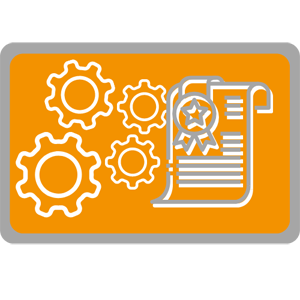
INCOSE SEP Exam Preparation
Próximas Fechas
27.05.2024 - 30.05.2024, Zurich
Descripción del Curso
A 4-day course to gain Systems Engineering skills whilst also being effectively prepared to take the INCOSE ASEP and CSEP exam. The training course is focused on both understanding and applying key Systems Engineering principles consistent with the ISO 15288 standard and the INCOSE Systems Engineering Handbook, enabling course attendees to both apply Systems Engineering more effectively, and to pass the INCOSE SEP exam.
Resultados
• Introduction to INCOSE, the handbook and the INCOSE certification model (SEP)
- Understand the key concepts of Systems Engineering
- Thorough review of the processes described in the INCOSE handbook
- Understand the structure and relationships of the ISO 15288 processes
- Extensive practice of realistic questions
- Prepared to take the INCOSE SEP Examination
Quién Debería Asistir
• Systems Engineers
• Requirements Engineers
• Integration, Verification and Validation Engineers
• Configuration Managers
• Quality and Process Engineers
• Project and Program Managers
• All Engineers seeking a holistic approach to Engineering
Precios del Curso:
Early Bird: 2475 CHF | Regular: 2750 CHF
Duración
4 días
Curso impartido por
Seb Klabes 

Mike Johnson 
Piet Belgraver 
Marco Di Maio 


Marco Serra 

Did you ever come across a 42 problem? Probably yes. The 42 problem is an answer, for which we do not have the question. Like products, we have been developing…
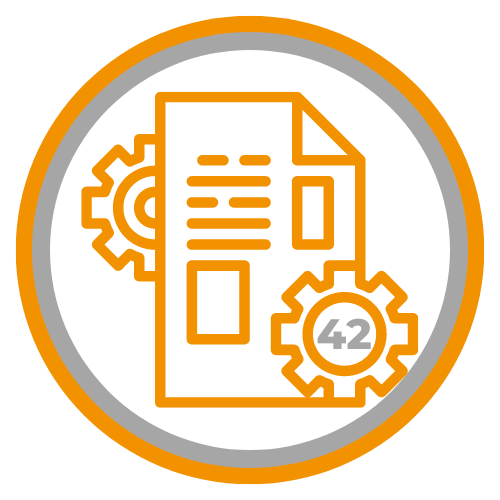
Requirements Engineering - The Hitchhikers Guide
Próximas Fechas
Descripción del Curso
Did you ever come across a 42 problem? Probably yes. The 42 problem is an answer, for which we do not have the question. Like products, we have been developing over the years, omitting proper requirements documentation, which is the answers to needs, which have been forgotten long ago. Now, everybody is trying reverse engineering with great tools and struggles.
This course gives you the fundamentals of requirements engineering, stakeholder management, and requirements documentation. It builds the basis for a later CPRE certification and introduces you to the basics of RE and its purpose as well as tooling, organizing and communicating requirements in a collaborative and agile workflow. No more misunderstandings and no more 42 problems. Guaranteed.
Resultados
• Deep understanding about the motivation for requirements & stakeholders
- Capability to differentiate between challenge & solution spaces
- Awareness for the role of the Requirements Engineer
- Application of different types of requirements
- The good and the bad - requirements and quality
- Awareness of the importance of requirements for risk management
- Sorting, structuring and managing requirements
- Requirements verification and validation
- Application of the feature-based approach to requirements
- Toolings and sorting
- Requirements reuse and their role for modularity
- How to apply requirements for regulatory issues
Quién Debería Asistir
• Requirements Engineers
• Product Leads
• Product Owners
• Product Managers
• Sales Engineers
• Integration, Verification and Validation Engineers
• Project Managers
Precios del Curso:
Early Bird Rate: 1,350 CHF. Regular Rate: 1,500 CHF
Duración
2 días
Curso impartido por
Oliver Fels
Engineering is accomplished by engineers and engineers are experts. Often enough, leading experts can be special and conflict management and communication is a high priority topic on the list. Expectation…

Engineering Leadership
Próximas Fechas
03.06.2024 - 04.06.2024, Zurich
Descripción del Curso
Engineering is accomplished by engineers and engineers are experts. Often enough, leading experts can be special and conflict management and communication is a high priority topic on the list. Expectation management requires full attention as misunderstandings happen quite often.
This course exposes classical leadership techniques enriched with a focus on communication and conflict management.
Resultados
• Detailed understanding of personal strengths and weaknesses in leadership roles
• Know historic examples of good and bad leadership practices applied to today’s work
• Know effective methods for making difficult leadership decisions
• Understanding of characteristics of leaders
• Apply effective strategies for managing confrontations in senior leadership roles
• Apply practical conflict management
• Managing commercial and executive expectations
• Practicing leading by example
Quién Debería Asistir
• Team Leads
• Department Leads
• Product Managers
• Product Owners
• Project Managers
• Management
Precios del Curso:
Early Bird Rate: 1,350 CHF. Regular Rate: 1,500 CHF
Duración
2 días
Curso impartido por
Oliver Fels
In the near future, providing transparency of an organisations sustainability strategy will become a competitve advantage to stand out from competitors.
Enterprises are becoming more obligated to take global responsibility…

Sustainability Engineering
Próximas Fechas
Descripción del Curso
In the near future, providing transparency of an organisations sustainability strategy will become a competitve advantage to stand out from competitors.
Enterprises are becoming more obligated to take global responsibility for their actions, recognizing that sustainability is a future driver for a sustainable existence. Increasing pressure is coming from regulatory bodies, financial and investors and the public audience.
This course provides an introduction to the sustainability engineering methodology, which enables clear identification of goals, targets and action items, and provides the means to structure, organize, track, verify and publish sustainability journey using traditional and creative engineering techniques.
In addition, the course is good preparation for compliance with ESG (Environmental, Social, and Governance), SDG (Sustainable Development Goals) and the upcoming CSRD (Corporate Sustainability Reporting Directive) based on ESR (Environmental and social risk management).
Resultados
• Introduction to extended sustainability issues and impact
• Fundamental knowledge about the regulatory issues and the business impacts
• Clear path how to define the sustainability story line
• Capability to set up, structure, track, validate, and publish sustainability requirements and action items inside and outside
• Vision to use Sustainability Engineering as a basis for CSR or any other sustainability report
Quién Debería Asistir
• Sustainability Managers
• Corporate leaders (CEO/CTO/CFO)
• Department Leads
• Sustainability Stakeholders
Precios del Curso:
Early Bird Rates: 1,350 CHF. Regular Rates: 1,500 CHF
Duración
2 días
Curso impartido por
Oliver Fels
A 3-day interactive course to gain Practitioner’s level skills for Integration, Verification and Validation (IV&V) of complex technical systems.
The training course is focused on both understanding and…

Integration, Verification and Validation (IV&V) Practitioner
Próximas Fechas
Descripción del Curso
A 3-day interactive course to gain Practitioner’s level skills for Integration, Verification and Validation (IV&V) of complex technical systems.
The training course is focused on both understanding and applying key principles, methods and processes consistent with the ISO 15288 standard and the INCOSE Systems Engineering Handbook, enabling course attendees to be prepared for working within and / or leading the IV&V phase for technical complex systems.
The course learnings are delivered through classroom teaching, short discussions, short exercises, and a facilitated group workshop.
Resultados
• Know the key concepts and terminology used in IV&V (Integration, Verification and Validation).
• Understand and apply key IV&V aspects from the ISO 15288 standard.
• Understand processes that contribute to IV&V in the design, development, acceptance, and operation of complex technical systems.
• Design and manage IV&V in time efficient interaction with programme logistics.
• Practice the preparation of the IV&V plan.
• Awareness of the main types of tests used in complex system verification.
• Know the use of analysis, inspection, and design review methods for verification and validation.
• Know the possibilities for re-using existing qualification within complex systems.
• Understand the IV&V Change Approval Board.
Quién Debería Asistir
• Integration, Verification & Validation (IV&V) Engineers
• Manufacturing, Assembly, Integration & Test (MAIT) Engineers
• Systems engineers
• Development Engineers needing a strong awareness of IV&V
Precios del Curso:
Early Bird: 2025 CHF | Regular: 2250 CHF
Duración
3 días
Curso impartido por
Mike Johnson 
Marco Di Maio 


Kevin Howard 
Estimating is often a challenging competence within projects developing complex systems. Often this is caused by the application of inappropriate estimation methodologies, leading to severe consequences such as projects running…
.png)
Practical Estimations
Próximas Fechas
Descripción del Curso
Estimating is often a challenging competence within projects developing complex systems. Often this is caused by the application of inappropriate estimation methodologies, leading to severe consequences such as projects running out of budget prior to their planned completion.
This course establishes a profound fundament through the various phases and why different viewpoints on the numbers are necessary. Learn the different techniques and how to apply each within the lifecycle phase. Learn who to involve and when, how risk management comes into play and the importance of documenting the right assets at the right point of time.
In addition, the various psychological aspects involved with estimating are covered during the course.
Resultados
• Fundamental understanding about estimations. Purpose, Motivation, error sources
• Understand the psychological challenges of Estimation
• Fundamental understanding of stakeholders involved
• Know what to expect from different estimators
• Understand different estimation phases
• Know major estimation techniques and their application
• Understand the Estimation recipe - what belongs into an estimation and what to document
• Apply Risk and Assumptions Management to Estimations
Quién Debería Asistir
• Engineers
• Team Leads
• Project Managers
• Engineering Leaders
• Integration, Verification & Validation Engineers
• Product Owners
Precios del Curso:
Early Bird Rates: 1,350 CHF. Regular Rates: 1,500 CHF
Duración
2 días
Curso impartido por
Oliver Fels
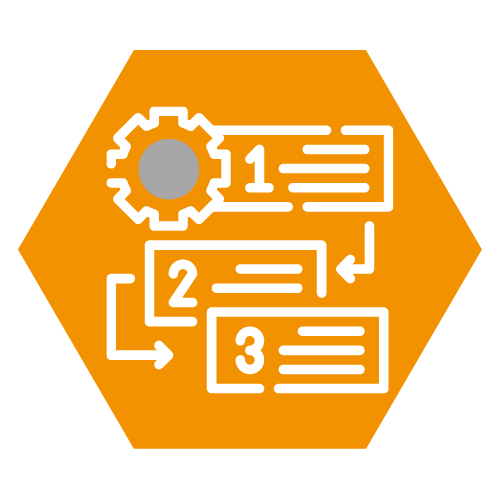
Planning Technical Projects
Próximas Fechas
Precios del Curso:
Curso impartido por
Piet Belgraver

Technical Risk Management
Próximas Fechas
Precios del Curso:
Curso impartido por
Mike Johnson 
Piet Belgraver 
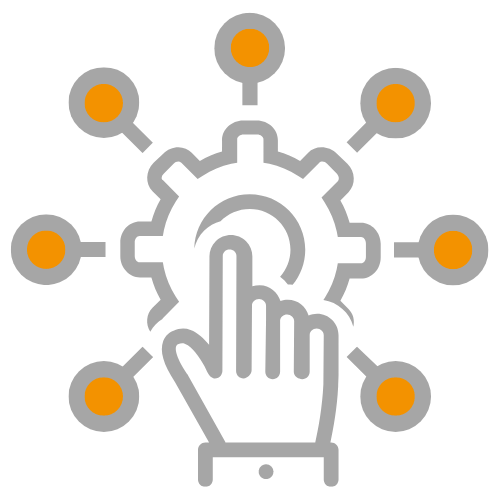
System Dynamics
Próximas Fechas
Precios del Curso:
Curso impartido por
Marco Serra
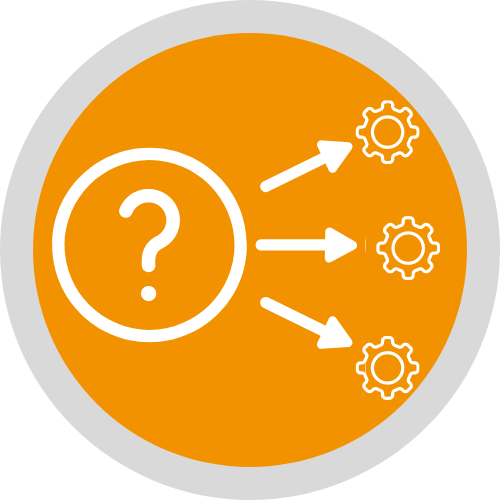
Root Cause Analysis (RCA) of Complex Systems
Próximas Fechas
Precios del Curso:
Early Bird: 2025 CHF | Regular: 2250 CHF
Duración
3 días
Curso impartido por
Marco Serra
You have already had initial experience with Scrum and may have already achieved Scrum Master or Product Owner certification. Now it is a matter of taking the acquired knowledge and…
.png)
Using Scrum successfully – The next step
Próximas Fechas
Descripción del Curso
You have already had initial experience with Scrum and may have already achieved Scrum Master or Product Owner certification. Now it is a matter of taking the acquired knowledge and the first experiences made one step further and working successfully with Scrum.
The event is designed as a workshop in which we work together on real challenges in everyday Scrum life and find pragmatic solutions that will help you in your specific area of application.
In the course of the course, in addition to knowledge transfer, exchange and group work, we will carry out an extensive agile simulation for one day using the Lego® Serous Play® method.
In order for us to be able to work together optimally within the framework of the Lego Serious Play Simulation, we only offer this course as a face-to-face event. If you would like online training on similar topics, please contact us.
Resultados
• In-depth understanding of Scrum's success factors.
• Learn and try out tools that will make you and your Scrum Team more successful.
• Answers to specific, personal experiences and challenges in your implementation of Scrum.
• Introduction and experience of the Lego® Serous Play® method
Quién Debería Asistir
The participants of this course should have previous experience in the implementation of Scrum and ideally be working in one of the roles below:
- Scrum Master
• Product Owner
• Scrum Developers
• Agile Coaches with Scrum Experiences
• Leaders with Scrum Experiences
We are happy to offer separate training courses for beginners on request.
Precios del Curso:
Early Bird: 2025 CHF | Regular: 2250 CHF
Duración
3 días
Curso impartido por
Christoph Bisel
Many teams experience the challenge of successfully planning sprints and successfully completing all planned tasks at the end of the sprint. The combination of Scrum and Kanban can offer a…
.png)
Combining Scrum and Kanban successfully
Próximas Fechas
Descripción del Curso
Many teams experience the challenge of successfully planning sprints and successfully completing all planned tasks at the end of the sprint. The combination of Scrum and Kanban can offer a decisive advantage here.
In this course you will learn how to successfully combine Scrum and Kanban. To do this, we will provide you with the necessary knowledge of Kanban and work together to develop the combination of both frameworks. Scrum knowledge as part of a Scrum basic training is required for this course.
Resultados
• You know how to successfully use Kanban in knowledge-based environments (IT, marketing, etc.).
• You understand the metrics of Kanban and can use them as a basis for continuous improvement.
• You know how to use Kanban to optimize your Scrum implementation.
• You know the success factors and framework conditions.
Quién Debería Asistir
The participants of this course should have previous experience in the implementation of Scrum. We are happy to offer separate training courses for beginners on request.
- Scrum Master
• Product Owner
• Scrum Developers
• Agile Coaches with Scrum Experiences
• Leaders with Scrum Experiences
Precios del Curso:
Early Bird Rates: 1,350 CHF. Regular Rates: 1,500 CHF
Duración
2 días
Curso impartido por
Christoph Bisel
Scrum supports teams in successfully developing products. But Scrum is not a complete project management method. As a result, many companies use Scrum (or other agile frameworks) but also want…
.png)
Hybrid project management
Próximas Fechas
Descripción del Curso
Scrum supports teams in successfully developing products. But Scrum is not a complete project management method. As a result, many companies use Scrum (or other agile frameworks) but also want to use elements from classic project management. A hybrid project management is sought.
In fact, "hybrid project management" doesn't exist. It is always a combination of several frameworks.
In this course, we work together to develop the basic questions and elements for the introduction of hybrid project management. In this way we create a basis for you and your team/s to successfully build up your hybrid project management.
Resultados
• Understand the challenges in the combination of agile frameworks and classic project management.
• Understand the success factors for a hybrid approach.
• Capable of developing a procedure for the development of a hybrid project management plan.
Quién Debería Asistir
This course has a high practical relevance. In order to get the most out of it, you should have practical experience with agile frameworks such as Scrum, Kanban, etc. and be familiar with the challenges of your organization in terms of project management.
- Project Manager with some agile Experiences
• Scrum Team Members
• Agile Coaches
• Leaders and Managers
Precios del Curso:
Early Bird: 2025 CHF | Regular: 2250 CHF
Duración
3 días
Curso impartido por
Christoph Bisel
Systems engineering is focused on managing the development of a product or system rigorously to ensure failure-free operation, ideally for its whole life. Try as we might though, for many…

Root Cause Analysis (RCA) for complex Systems
Próximas Fechas
Descripción del Curso
Systems engineering is focused on managing the development of a product or system rigorously to ensure failure-free operation, ideally for its whole life. Try as we might though, for many reasons things do fail. The complexity of many of the systems we design, combined with a complex and sometimes unpredictable environment, is such that emergent behaviour can have unforeseen consequences that have to be rectified. To address these problems we have to understand the root causes of such failures and in order to do this successfully, and avoid wasting precious time and resources, we have to approach this complex task in a structured way. We have to understand not only the technical aspects of the problem, but the political aspects associated with the involved stakeholders. The basic systems engineering approach and systems thinking methodologies can help us do that.
This course is presented primarily as an interactive workshop where participants get to solve a practical problem based on the failure of a real system. By working on an unfamiliar problem, the focus on the method is strengthened and its advantages are highlighted. An initial review of systems engineering principles that apply and an in-depth analysis of the problem solving techniques employed in these situations equips the participants with the tools necessary to address the challenge presented in the workshop. The workshop provides the participants with the opportunity to work through a real failure case and present their findings. The outcome of the actual investigation is presented and discussed in a final review that enables the participants to evaluate their own performance.
Resultados
• Participants understand systems engineering principles that are applicable in complex problem solving.
• Participants understand the importance of considering stakeholder perspective and motivation.
• Participants develop an awareness of analysis methods and tools that can be applied in solving complex technical problems.
• Participants understand how to approach complex technical problems holistically.
• Participants are able to put the knowledge into practice and successfully identify the root cause of the actual system failure resented in the workshop.
Quién Debería Asistir
• Systems engineers
• System architects
• Project managers
• Development engineers
• Reliability engineers
• Quality engineers
• Integration, Verification and Validation Engineers
• Product owner
Precios del Curso:
Early Bird: 2025 CHF | Regular: 2250 CHF
Duración
3 días
Curso impartido por
Marco Serra
Making the right decision in a complex context is difficult. We are able to understand and resolve simple cause and effect relationships, or causal loops, without too much trouble. However,…

System dynamics
Próximas Fechas
Descripción del Curso
Making the right decision in a complex context is difficult. We are able to understand and resolve simple cause and effect relationships, or causal loops, without too much trouble. However, in the real world these simple causal loops have themselves relationships with other causal loops and once more than a few combine, the emergent behaviour is very often complex and non-intuitive. The world is full of examples of seemingly simple solutions to apparently clear problems that then turn out to be more complex than initially thought, resulting in unintended and sometimes disastrous consequences.
In this course, participants learn to apply systems thinking principles to interpret cause and effect relationships in different systems in order to model them. A short introduction to system dynamics modelling software enables participants to initially build and simulate simple systems in order to gain practical confidence in the use of these types tools. Following this, participants collaborate in teams, with the guidance of the instructor, in an interactive workshop in which they get to build a generic project model that is used to evaluate the effect of a number of technical project management policies on schedule and cost. The gained insights are used to make a number of key decisions and recommendations to senior management (represented by the instructor) in a public presentation.
Resultados
• Participants understand the concept of systems thinking and can apply it.
• Participants understand the concept of causal loops and know how to represent them for simple relationships.
• Participants understand that different causal loops can relate to each other and know how to represent those relations.
• Participants understand the issues associated with non-intuitive emergent behaviour due to increasing complexity.
• Participants are able to assemble basic causal loops into larger system dynamic models.
• Participants are able to simulate and interrogate a system dynamics model to gain insight into non-intuitive emergent dynamics
Quién Debería Asistir
• Systems engineers
• System architects
• Project managers
• Product owners
• Engineering Team leaders
• Anyone with an interest in system dynamics
Precios del Curso:
Early Bird: 2700 CHF | Regular: 3000 CHF
Duración
4 días
Curso impartido por
Marco Serra
The SE-PDP addresses a fundamental need of many Organisations. With a shortage of senior Systems Engineers and Lead Systems Engineers, how can their teams rapidly increase their SE maturity and…
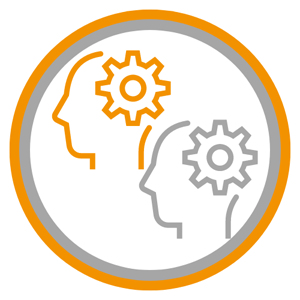
Systems Engineering - Professional Development Programme (SE-PDP)
Próximas Fechas
Descripción del Curso
The SE-PDP addresses a fundamental need of many Organisations. With a shortage of senior Systems Engineers and Lead Systems Engineers, how can their teams rapidly increase their SE maturity and capabilities in a low risk, cost effective and fully customised professional development programme.
The SE-PDP is structured to be delivered over four on-site training sessions, covering three main areas of Systems Engineering:
1. End-to-end complex systems development (6-days)
2. Integrating specialities / quality attributes applicable to the Customer (3-days)
3. SE Matrix Management & Leadership (3-days)
The SE-PDP is only offered in-house and is highly customisable to project teams and their organisations.
Resultados
• Identify common attributes and causes of complexity.
• Master the application of Systems Engineering methodologies to complex system developments.
• Master key technical management competences required for Senior Systems Engineers, technical matrix leaders.
• In a moderated workshop develop sustainable solutions in the System of Systems context.
Quién Debería Asistir
• Systems engineers
• System architects
• System analysts
• Project managers
• Product owners
• Engineering teams
Precios del Curso:
Please contact us for a customised offer.
Duración
12 días
Curso impartido por
Seb Klabes 

Mike Johnson 
Mohammad Chami 

Marco Di Maio 


Sandra Roth 

Marco Serra 

Gordon Woods 
Kevin Howard 
This course is will provide the structure, guidance and best practice to allow “Customer” teams to create detailed and executable Concept of Operations (CONOPS), allowing better interactions with their suppliers…
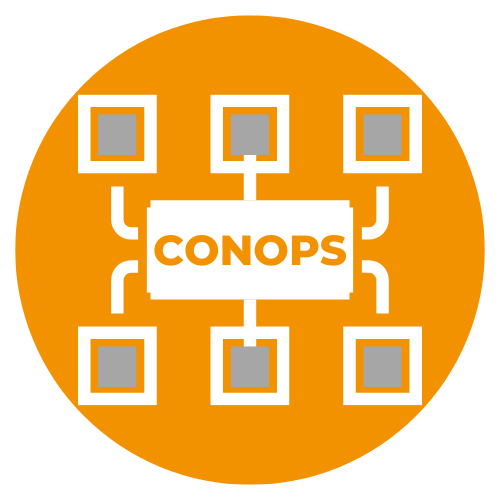
Concept of Operations (CONOPS) - What your suppliers need to know and how to deliver it
Próximas Fechas
Descripción del Curso
This course is will provide the structure, guidance and best practice to allow “Customer” teams to create detailed and executable Concept of Operations (CONOPS), allowing better interactions with their suppliers and more accurately representing the needs of their users. This will save the customer time and rework, whilst creating the building blocks for system design and integration. The course can be used by candidates from across all sectors of industry that are procuring complex systems and system of systems.
Resultados
• To be able to define the types of information that shape a problem space
• To understand how to capture user needs
• To understand why CONOPS are required by industry and suppliers
• To understand the the design process which is initiated by the development of a CONOPS
• To be able to describe users and their roles consistently
• To understand environmental constraints and impacts
• To enable the students create their own CONOPS when they return to work
Quién Debería Asistir
• Requirements Engineers & Managers
• User representatives
• Systems and Project Engineers
• Project and Programme Managers
Precios del Curso:
Early Bird Rates: 1,350 CHF. Regular Rates: 1,500 CHF
Duración
2 días
Curso impartido por
Pete Burgess

Security, Cyber and Resilience Engineering
Próximas Fechas
Descripción del Curso
The focus of this course is on introducing principles and practices for analysing, designing and implementing secure and resilient systems, including cyber systems. Trainees will learn about threat analysis, risk assessment, risk mitigation, business continuity and the security accreditation process. The course aims to equip trainees with the knowledge and skills necessary to understand security management.
Resultados
• Understand the principles of Security, Cyber and Resilience Engineering.
• Analyse and identify potential threats and vulnerabilities in systems.
• Perform risk assessments and develop risk mitigation strategies.
• Implement security measures and practices to protect systems from cyber threats.
• Learn about business continuity and disaster recovery planning.
• Familiarise trainees with the security accreditation process for systems.
• Acquire skills in security management to ensure robust and resilient systems.
Quién Debería Asistir
• Security Analysts
• Cybersecurity Professionals
• Systems Architects
• Systems Engineers
• IT Managers
• Risk Managers
Precios del Curso:
Early Bird: 2025 CHF | Regular: 2250 CHF
Duración
3 días
Curso impartido por
Vincent Arnould
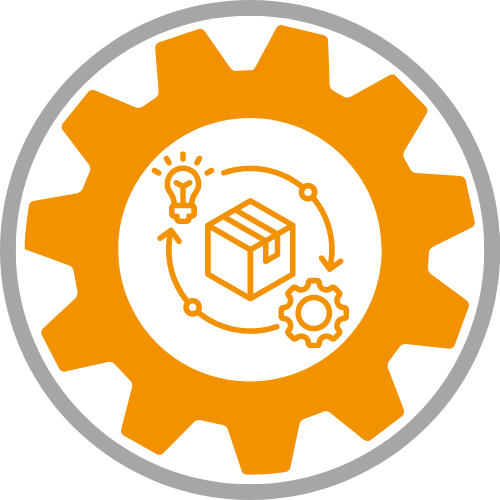
Product-line Engineering and Variant Management
Próximas Fechas
24.04.2024 - 26.04.2024, Zurich
Descripción del Curso
This course is an introduction to techniques for developing a package of related products using a common set of assets and reusable components. Trainees will learn about feature modeling, configuration management, variability management, product-line architecture, product derivation and software product-line development processes. The course aims to enhance the trainees' ability to manage product variants effectively and optimise their product-line development practices.
Resultados
• Understand the concept of product-line engineering and its benefits.
• Learn about feature modeling and configuration management.
• Acquire knowledge of variability management and its application in product-line development.
• Familiarise trainees with product-line architecture and product derivation techniques.
• Develop skills in software product-line development processes.
• Optimise product variant management practices for improved productivity.
Quién Debería Asistir
• Systems Architects
• Systems Engineers
• Software Engineers
• Product Managers
• Product Development Managers
• Configuration Managers
Precios del Curso:
Early Bird: 2025 CHF | Regular: 2250 CHF
Duración
3 días
Curso impartido por
Vincent Arnould
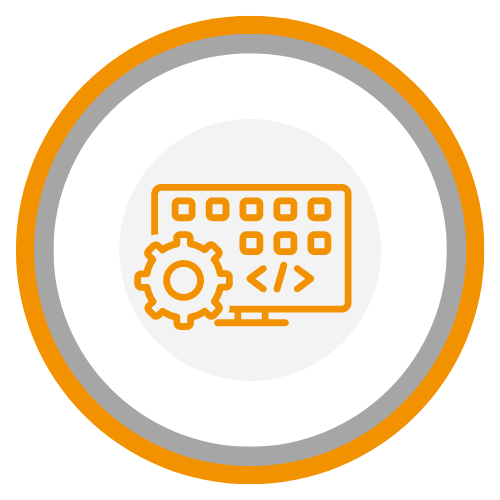
Software Requirements Engineering
Próximas Fechas
26.06.2024 - 28.06.2024, Zurich
Descripción del Curso
This course covers the process of eliciting, documenting, analysing and managing software requirements requiring the use of techniques for capturing and validating requirements, including interviews, surveys, prototyping and case modeling. The course also covers requirements prioritisation, traceability and management throughout the system and software development lifecycle. The aim is to empower trainees with the skills to bridge the gap between stakeholders and development teams by translating user needs into well-defined system requirements.
Resultados
• Understand the requirement engineering process and its importance in software development.
• Learn various techniques for eliciting and documenting software requirements.
• Acquire skills in requirements analysis, validation, and prioritisation.
• Explore methods for traceability and requirement management throughout the development lifecycle.
• Bridge the gap between stakeholders and development teams effectively.
Quién Debería Asistir
• Business Analysts
• Systems Analysts
• Requirements Engineers
• Software Developers
• Project Managers
Precios del Curso:
Early Bird: 2025 CHF | Regular: 2250 CHF
Duración
3 días
Curso impartido por
Vincent Arnould
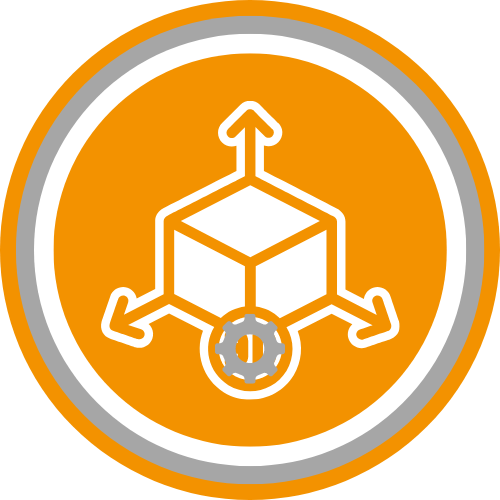
Model Driven Engineering, Architecture, and Development
Próximas Fechas
Descripción del Curso
This course targets professionals interested in model-driven engineering (MDE) in system and software development. It covers principles and techniques for creating and manipulating models at different abstraction levels. Trainees will learn about domain-specific modeling languages, metamodeling, model transformations and code generation. The course emphasises the benefits of MDE in improving productivity, maintainability, and reusability of systems. The aim is to equip trainees with practical skills in applying MDE approaches in their professional software development projects.
Resultados
• Understand the principles and benefits of model-driven engineering (MDE).
• Learn how to create and manipulate models at different abstraction levels.
• Acquire knowledge of domain-specific modeling languages and metamodeling.
• Develop skills in model transformations and code generation.
• Apply MDE approaches in software development projects for increased productivity and maintainability.
Quién Debería Asistir
• Systems Architects
• Systems Engineers
• Software Architects
• Software Developers
• Modelers
Precios del Curso:
Early Bird: 2025 CHF | Regular: 2250 CHF
Duración
3 días
Curso impartido por
Vincent Arnould
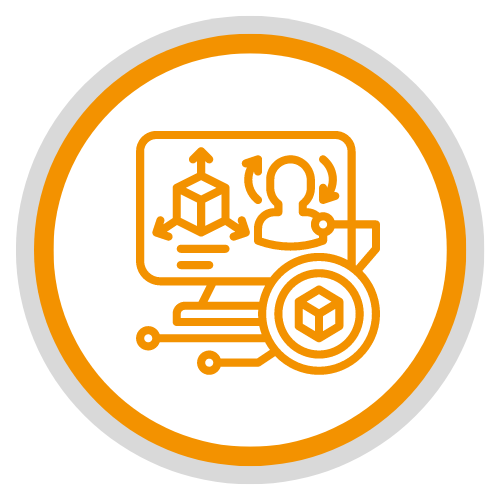
Modeling and Simulation
Próximas Fechas
19.06.2024 - 21.06.2024, Zurich
Descripción del Curso
This course is designed for professionals seeking to enhance their understanding and analysis of complex systems through modeling and simulation. Trainees will learn various modeling approaches, including discrete event simulation, agent-based modeling, system dynamics and Monte Carlo methods. The course covers topics such as model formulation, experimentation, verification, validation, training and exercises. Trainees will gain practical skills in developing simulation models and analyzing system behavior to support decision-making in their respective professional domains.
Resultados
• Understand the role of modeling and simulation in analysing complex systems.
• Learn various modeling approaches, including discrete event simulation and agent-based modeling.
• Acquire skills in model formulation, experimentation, verification, validation.
• Analyse system behavior through simulation to support decision-making.
Quién Debería Asistir
• Systems Analysts
• Decision-makers
• Researchers
• Engineers in various domains requiring simulation skills
Precios del Curso:
Early Bird: 2025 CHF | Regular: 2250 CHF
Duración
3 días
Curso impartido por
Vincent Arnould
Product Lifecycle processes are a key pillar for each organization, ensuring consistency, efficiency, quality, and effective management of tasks and activities, ultimately leading to successful and predictable outcomes.
The Process Management…

Process Management
Próximas Fechas
Descripción del Curso
Product Lifecycle processes are a key pillar for each organization, ensuring consistency, efficiency, quality, and effective management of tasks and activities, ultimately leading to successful and predictable outcomes.
The Process Management course is designed to equip professionals with a comprehensive understanding of process design based on product lifecycle models of ISO 24748 integrating 15288 (Systems Engineering) and its alignment with ISO 9001 (Quality Management).
Participants will acquire practical insights into applying the learned concepts within real organizations. In this context, involving the right stakeholders and establishing the appropriate measures for process quality assurance are equally crucial.
This course encompasses a blend of interactive workshops, individual and group exercises to enhance participants' knowledge and skills in process management. The course emphasizes real-world applications, enabling attendees to apply the principles learned to their specific roles and industries.
Resultados
● Recognize the pivotal role of product lifecycle processes in organizational success, ensuring consistency, efficiency, and quality.
● Understand how ISO 24748 integrates with ISO 15288 and ISO 9001 for comprehensive process management. I
● Apply product lifecycle concepts effectively in real organizations, addressing unique challenges.
● Identify and involve the right stakeholders crucial for successful process management.
● Design and implement robust measures for process quality assurance throughout the product life cycle.
● Apply process management principles in real-world scenarios, addressing specific industry challenges.Interactive Case Study according to ISO 13485
● Customize process management strategies to align with your professional role and responsibilities.
● Foster a culture of quality and continuous improvement within your organization for long-term success.
Quién Debería Asistir
● Quality Managers / Engineers
● Quality Assurance Managers / Engineers
● Process Managers / Engineers
● Process Owners
● Engineering Managers
● Systems Engineers
● Project Managers
Precios del Curso:
Early Bird Rates: 1,350 CHF. Regular Rates: 1,500 CHF
Duración
2 días
Curso impartido por
Martin Oswald
Servicios
 Processes
ProcessesStreamline and optimise your technical and organisational processes.
Process Development
Optimising your technical and organisational processes.
In our work, encountering complexity is inevitable and can become all consuming. By optimising and streamlining processes we are more able to focus on innovating products.
The importance of Processes
Processes are the veins of any Organisation, to function successfully we must ensure they flow smoothly and coherently, working in harmony - not contradiction. Processes are also the pathways that lead us to our goal; they allow us to overcome obstacles, adapt to changes and take different directions. Therefore, it is imperative to have a strong, strategic network of processes which support and enable efficient and effective working practices.
Process Development for Working more Effectively
Processes should help you, not hinder you. Yet, too often, the opposite is true. Organisations can find themselves operating with ineffective processes due to:
- Outgrowing traditional ways of doing things.
- Overly designed processes that do not account for operational day-to-day reality.
- ‘Processes’ that have become cultural habits, formed because there were no alternatives in place.
Assessment
We make an initial assessment of the current status of your Organisation’s Engineering processes to identify processes that can be optimised, replaced and/ or retired.
Workshops
We devise a training workshop (circa. 5 days) to address pain points and train your team on SE Methodologies and processes with specific references to current tools and systems used. We will explore how the process changes will impact on current work practices and build your foundational knowledge of SE principles to support all other areas.
Development
Together we will monitor the system changes and ongoing deployment of process development, adjusting until work practices are optimised and established.
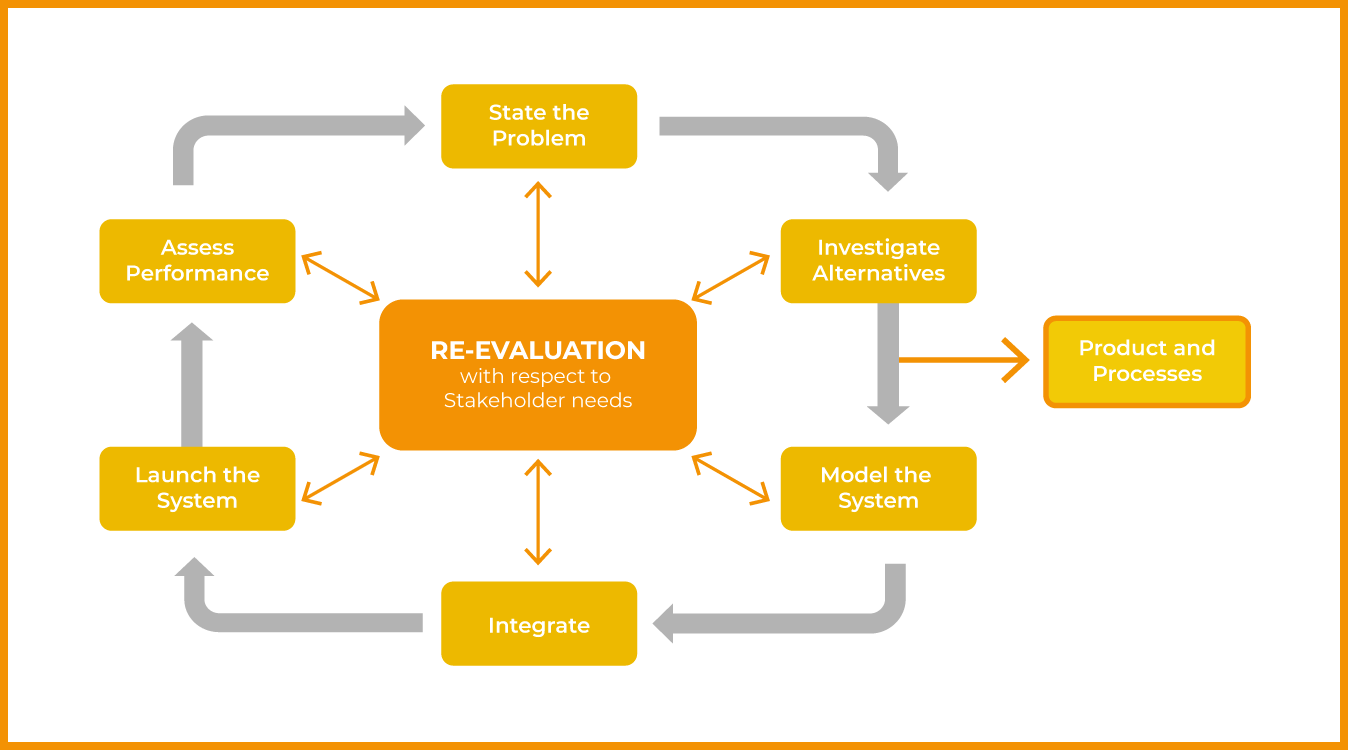
Who’s it for?
Any small, medium, or large Enterprise looking to improve and structure their processes more efficiently and effectively.
 Coaching
CoachingIntegrate positive changes into teams and organisations with our targeted and tailored coaching packages.
Project Coaching
Expert support that is tailored, targeted and timely.
Our coaching will provide you, your project and your team with a supportive, incremental, and multi-phase structure to effectively aid the implementation, development, and continuous improvement of your Enterprise’s capabilities.
We meet you where you are.
Irrespective of your Enterprise’s Engineering maturity, our coaching approach enables us to adapt and enhance your capabilities to your required goals.
Areas of Coaching
We provide coaching across many areas of Engineering, for example:
- Technical Leadership
- Requirements Engineering and Management
- Model Based Systems Engineering
- Systems Engineering Management
- Systems Architecting
- Configuration Management
- Design for Reliability Service Outcomes
- Extensive Design Trade-Offs
- Lifecycle Management
- Risk Management
- Integration, Verification & Validation Strategy
- Project Tracking
Time Blocks and Lean Working Models
Our coaching structure provides intense, effective, and focused blocks of time (days, weeks, or months) for phased activities, tailored to your specific needs.
- We allocate you the expert coach(es) best suited to support you and your unique needs.
- Your coach(es) will be available to you for an agreed period, with time dedicated for documenting, reviewing, and planning.
- Your coach(es) will work alongside your team in their normal working environments.
- You and your coach(es) will implement a flexible working style with minimal resource dependencies.
Service Outcomes
Optimal Teams
Ensure confident and motivated teams by promoting opportunities for them to grow, identifying their strengths and expertise, and leveraging them to effectively apply cross-functional Engineering disciplines on your project.
Tailored Processes
We work alongside or integrate within your project team to tailor and optimise your processes, tools, and organisational management - creating a streamlined and systematic development approach.
Reduced Complexity
We implement and optimise processes to help reduce and effectively manage the Systems complexity across the Lifecycle.
Who’s it for?
Teams and organisations working in complex product development and support. Organisations seeking to set up project team-specific work practices and Engineering processes.
 Training
TrainingIn-house training, developed to the specific needs of your Organisation.
Bespoke Training
In-house training, developed to the specific needs of your Organisation
Our Engineering courses and training programmes are the ideal solution for Enterprises needing to foster innovation, improve multi-functional collaborations and enable complex product development. Working with you, we establish your required outcomes to determine which training options would be most beneficial to your team/project/or Organisation e.g., attending one of our existing training courses or developing a specific training programme which is targeted to your unique needs. We will find the most suitable and complete training solution to ensure you address professional development universally and efficiently across your teams.
TRAINING BENEFITS WITH SE-T
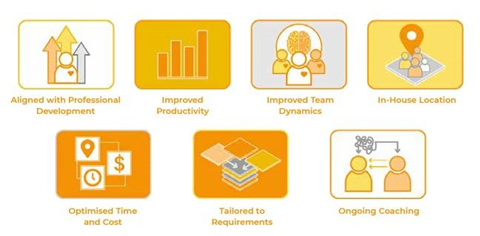
The Tailoring Process
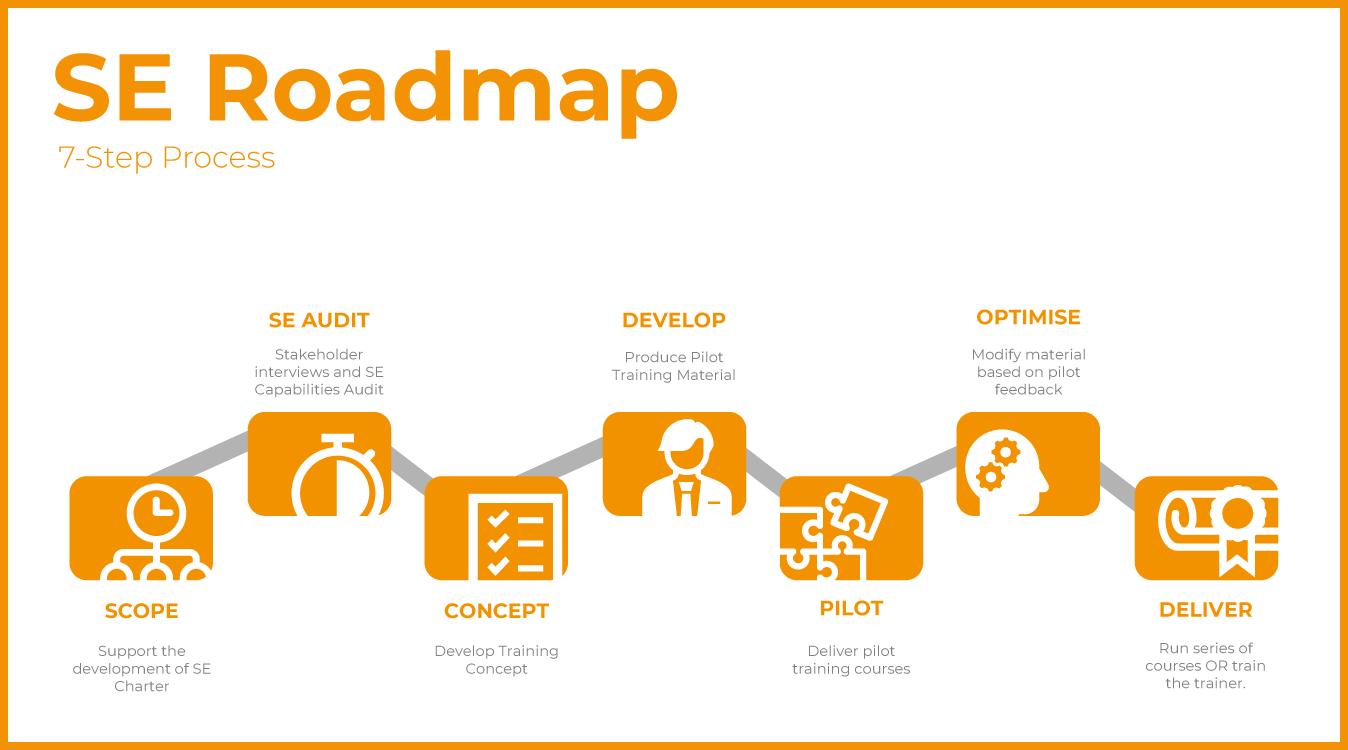 Interview and Audit
Interview and Audit
Creating a tailored training programme is initiated with interviews of the project sponsors, leading to a thorough assessment of your team’s training needs. Key factors considered are:
- Enterprise goals and constraints
- Industry needs
- Education, skills, and experience of employees
- Level of complexity of Systems under development
Proposal and Recommendations
Following our assessment, we propose a training programme, designed to meet your specific requirements. We may suggest:
- Technical training is delivered by several experts, so you receive the highest quality teaching in each identified area.
- Integrating or tailoring one/or more of our existing training courses into your overall training programme .
- Employing a project coach to further boost the implementation, development, and continuous improvement of your Enterprise’s capabilities. We can also tailor the content of any of our existing in-house courses by:
- Including activities in the modules specific to a given domain, such as MedTech, Aerospace etc.
- Tailoring the workshop to a domain specific example (our standard workshop is the Colonisation of Mars).
- Integrating modules from other SE-Training courses, for instance on Systems Reliability, MBSE or Configuration Management.
- Developing new modules on unique subjects, such as Acoustics Systems Engineering.
Develop and Review Materials
Based on the agreed proposal, we will develop and refine your training programme so it is comprehensively tailored and targeted to your project needs (processes, methods, skills etc.).
Pilot and Batch Delivery
Depending on the scope, content, and size of the training programme, we may propose developing *pilot courses as part of the overall series course development. How we deliver the pilot and series delivery is assessed on an individual case-by case-basis.
*These offer added value and assurance to our customers, by acting as highly effective risk mitigations. We advise they are attended by experienced employees to give early feedback on the quality of the content.
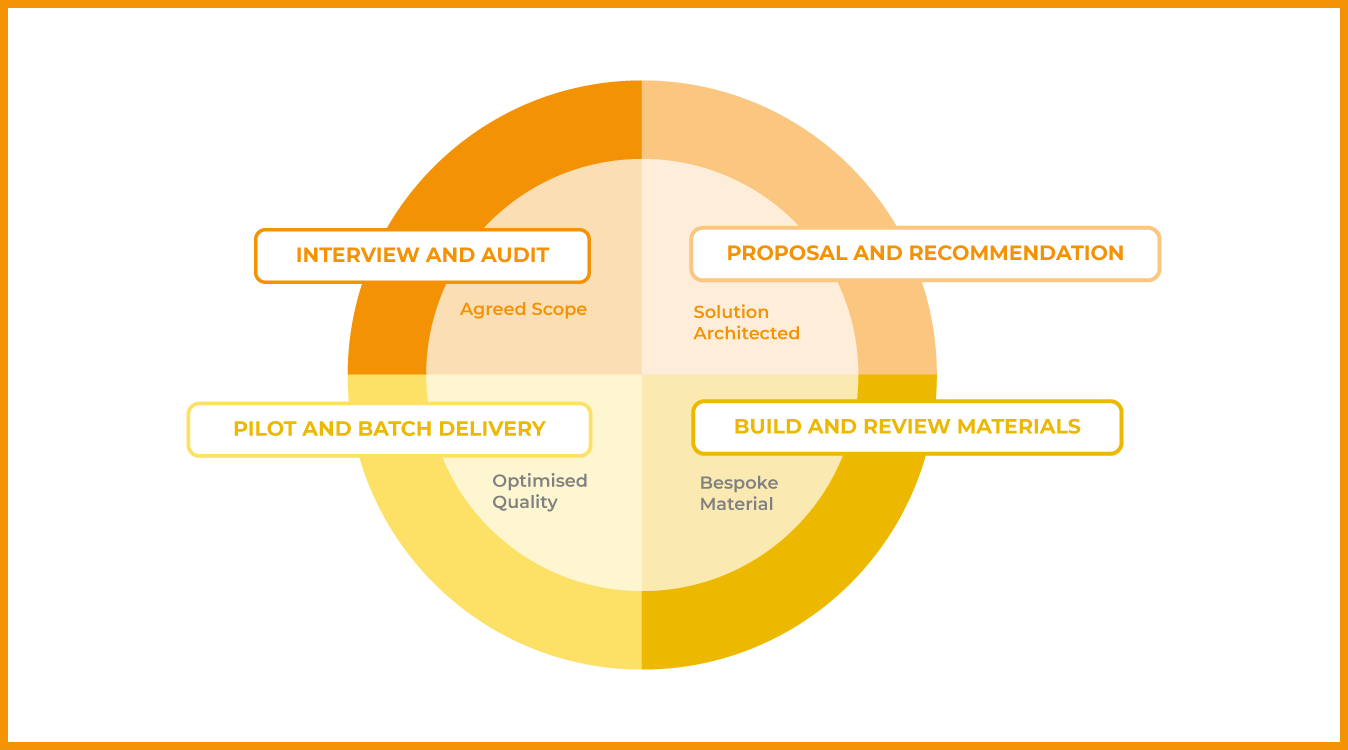
Who’s it for?
- Project teams working on complex product development or support.
- Organisational groups and departments working on improving cross-functional collaborations, especially within medium to large Enterprises.
- Project teams that have a mature Systems Engineering culture, but require targeted input on specific processes, methods and/or skills.
Not sure of the best option for you? Contact us and we can talk it through with you.
 SE Solutions
SE SolutionsFlexible solutions and expert advice to help deliver the results you need.
Off-the-Shelf Solutions
Flexible solutions to help deliver the results you need.
Why re-invent the wheel?
We provide a range of adaptable, downloadable, off-the-shelf, solutions to enhance productivity and business performance.
These include:
- Document templates
- SE Guides
- Recruitment resources
Complex documents made easy
We provide specific, structured, in-depth templates which give you the steppingstone to completing high quality, standard compliant documents. With pre-designed, comprehensive formats that are easily modified and ready to personalise you can avoid document disorder and begin streamlining work practices.
Let us guide you
Our downloadable guides and manuals are an essential resource for your Organisation and an effortless way to seamlessly maintain your records. You can be assured that they are up to date, relevant and reliable.
Ready-made recruitment resources
We offer a range of solutions to support your Systems Engineering recruitment process, including job descriptions and interview activities and questions. These are written to ensure you select the most suitable candidate for your Organisation.
In need of Inspiration?
Expert Support
Often, we are too close to our own projects and need a sounding board, or someone to impart their knowledge and perspective to give us a steer us in the right direction. We offer expert advice for your System Engineering issues. You can arrange an exclusive session with one of our SE-Experts who will offer you invaluable and objective advice to any of your questions. In addition, we offer:
- Expert Peer review of a document, Engineering process, design solution etc.
- Expert advice for recruitment of Systems Engineers.
- Expert moderation for project workshops e.g., for the development of a Functional Architecture.
 Tools
ToolsDefine, develop, and implement the optimal ‘tools suite’ solution for your technical and organisational needs.
Tools Selection
Tool Selection
Determine the optimal ‘tools suite’ for your technical and organisational needs. Identifying the optimal tool integration for your Organisation can be an intimidating and challenging process. There is no one-size-fits-all-systems modelling tool. An accurate and systematic analysis of needs is vital to the tool selection process. Our experts will lead you through a thorough exploration of your requisites and match you with the correct tools for your Organisation.
10 Check Points for Tool Selection
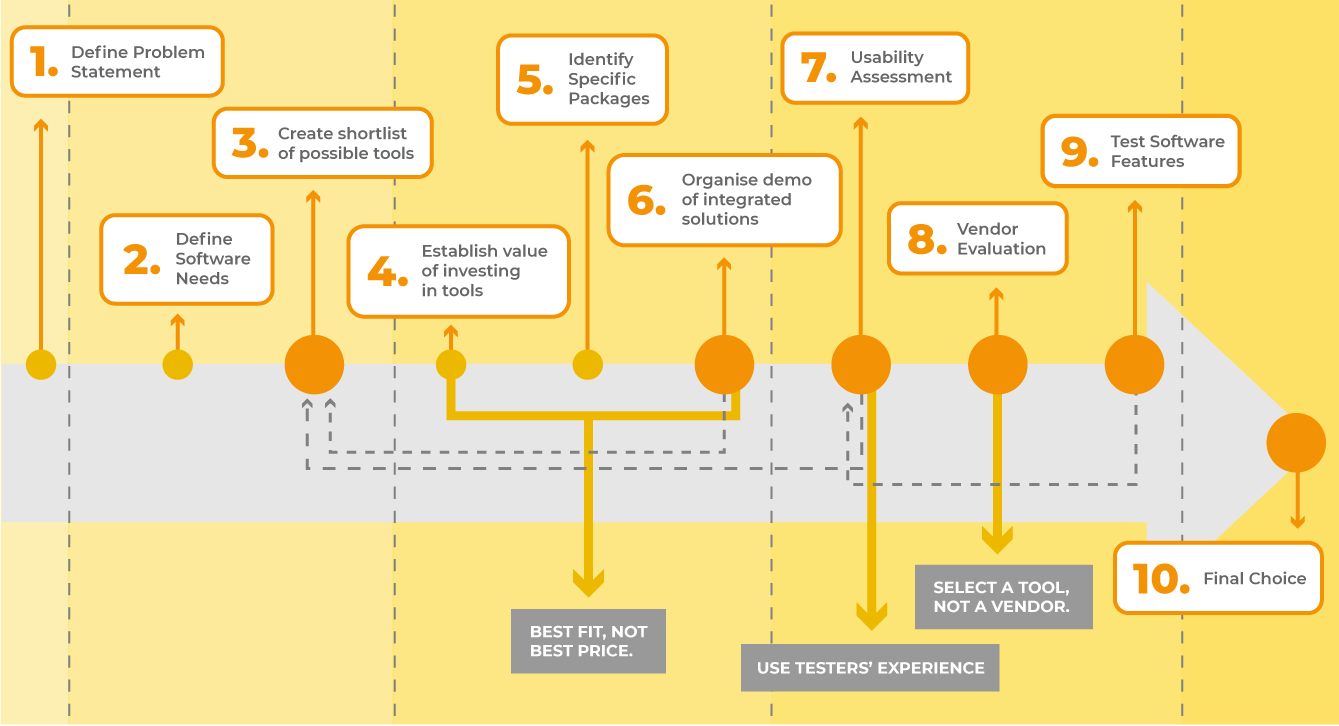
THE SELECTION PROCESS
Initial Assessment
- Identify the gaps and limitations of current Engineering tool environment.
- Understand the business case for tool integration.
- Capture the expectations of internal and external stakeholders.
- Document conclusions for ‘as is’ status and validate findings.
Definition
- Define the ‘to-be’ tool environment.
- Capture the expected features of the ‘to-be’ tool environment.
- Derive and define the detailed tool requirements and their attributes.
- Define and document the user roles, use cases and the ‘to-be’ Tool architecture.
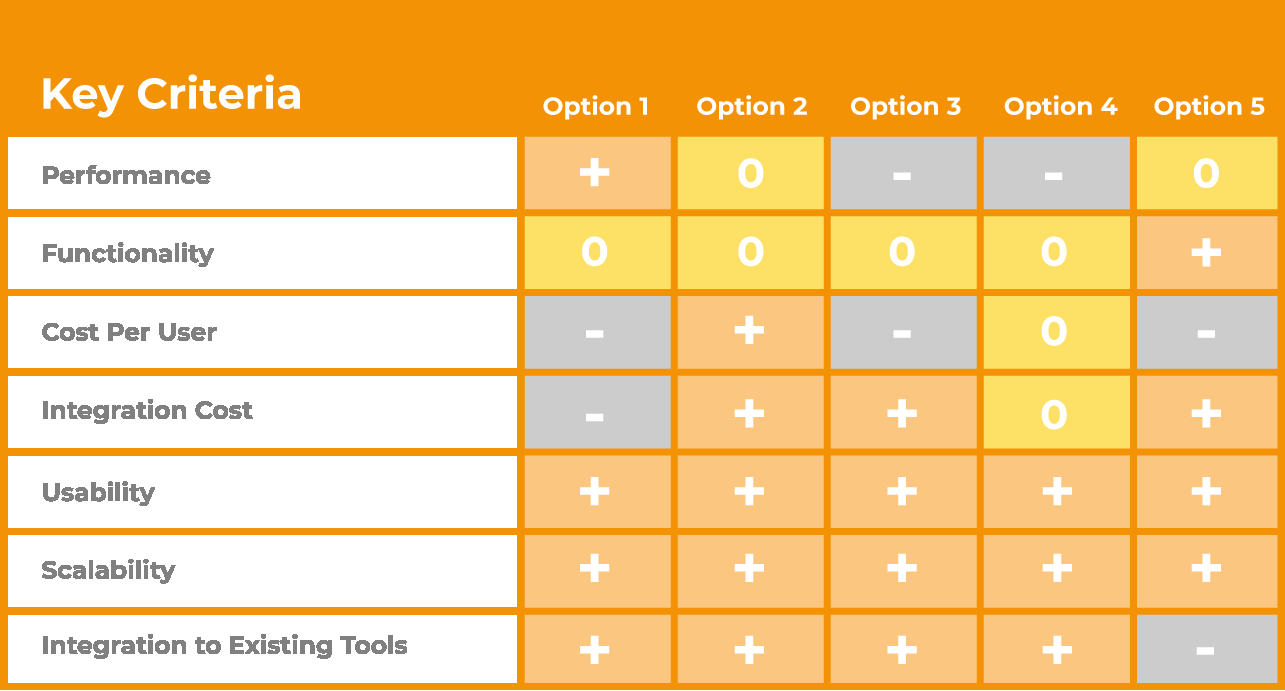
Procedure
- Document the traceability between the availability of tools and defined requirements.
- Develop a use case example to be used during tool vendors evaluation workshops.
- Manage tool vendor evaluation workshops to demonstrate tool capabilities and create usability assessment.
- Test software features before making a final decision on which tools to implement.
- Document findings in the ‘Request for Proposal’ with tool selection decision.
Implementation
- Working with trusted partners we can implement your specific ‘tools suite’ to ensure an optimal end-to-end solution for your Organisation.
Who’s it for?
- Teams and Organisations working in complex product development
- Highly regulated industries.
 Reviews
ReviewsIdentify ways to build organisational capabilities with our thorough and focused Engineering Reviews.
Engineering Reviews
The first step in maturing your Enterprise’s capabilities: Identify where you are.
We have a flexible approach when it comes to conducting our reviews. Adapted to your circumstances, we focus on multiple or single areas depending on your Engineering, Organisational and Project needs.
Engineering Reviews: FAQs
What do we do?
We provide unbiased assessments and reviews of your Organisation against its business strategy, focusing on specific areas such as: your organisational set-up, the skills of the employees, current business processes, company culture, and reward systems.
What’s the value of a review?
Having an objective and independent review will:
- Provide validation, assurance, and credibility in specific areas.
- Confirm if your processes are correctly implemented and meet organisational objectives and/or standards.
- Uncover areas where you need additional assistance e.g., product delivery.
- Provide innovative ideas for process improvements.
- Develop capabilities.
Who conducts the review?
One or more of our experts will carry out your review. This will be dependent on their areas of expertise to ensure you have the most suitable person(s) assigned.
How will it be conducted?
Depending on the scope of work we offer reviews in several means and durations e.g., as half-days focusing on a specific area, or in blocks of 1 to 2 weeks offering in depth reviews of the organisational set-up. In addition, we offer reviews against the ISO 15288 standard and other relevant Engineering standards to provide assurances of consistency within these guidelines.
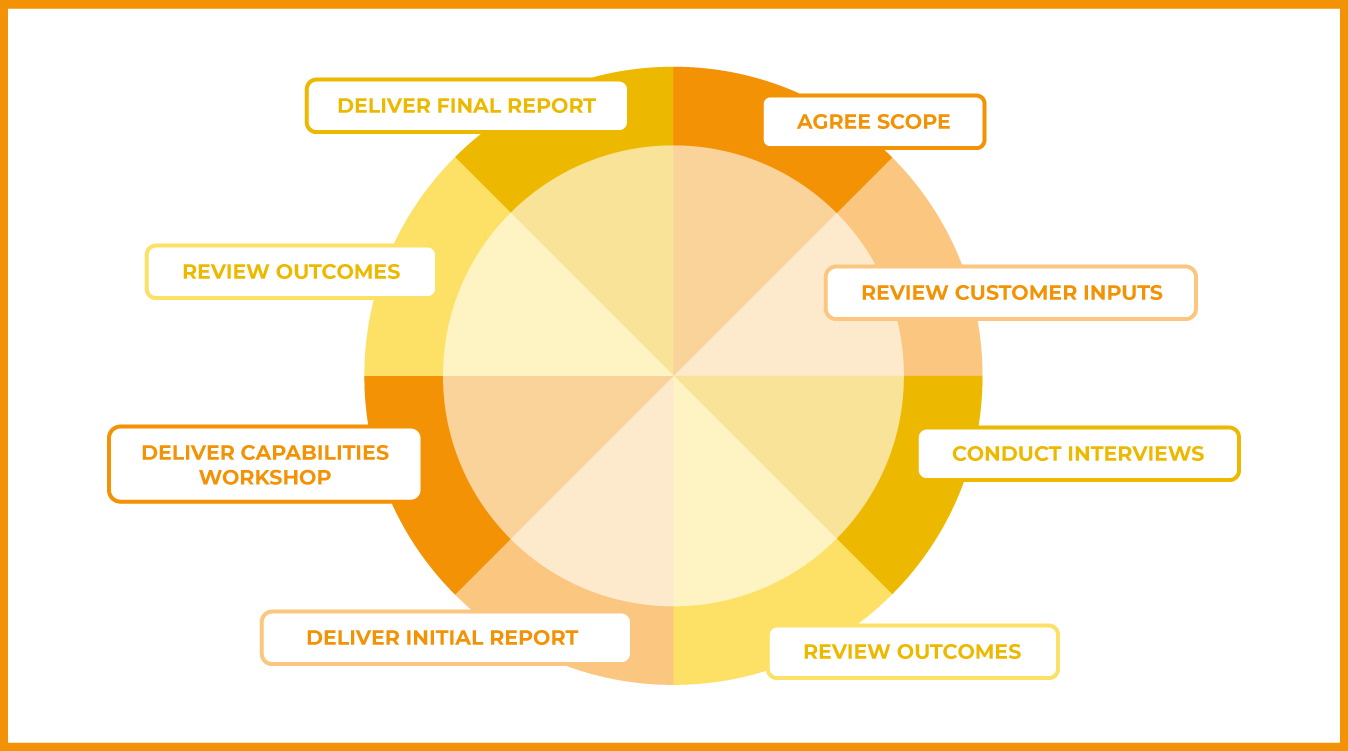
Capabilities to Competencies
Development of competencies is only meaningful once we have defined the capabilities you want to have as a team or Organisation, aligned with the desired project outcomes or organisational mission. Once these are identified we will then compile a comprehensive and realistic map of the resources available to you, so you are able to achieve your goals. We can guide you through the tricky process of defining capabilities, maximizing existing resources or acquiring new ones and ensuring you are complying with standards.
Capabilities
The essence of what an Enterprise needs to establish and mature, enabling itself to remain innovative and competitive. Difficult to define tangibly.
Competencies
These can be targeted to realise capabilities. These are measurable, extensively described and documented. They are tangible.
Resources
Development of competencies is achieved through many means, e.g., training, tailored processes, establishing effective tool-chains, and designing systems which are supportive of the competencies.
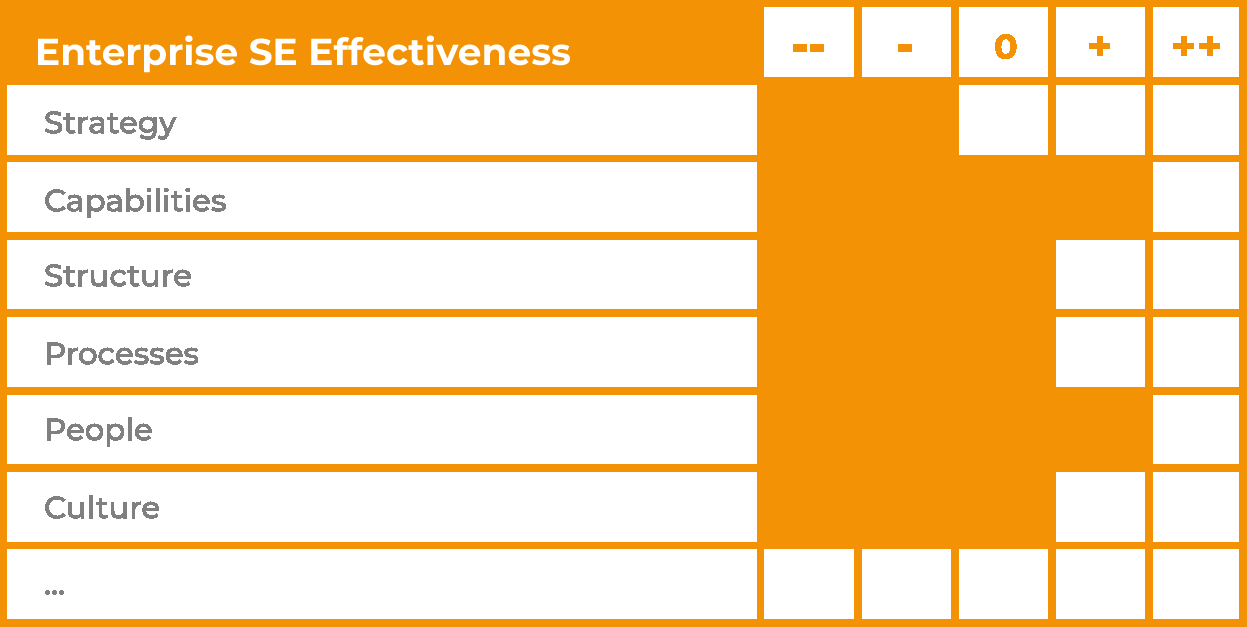
Who’s it for?
Organisations that are operating in an industry or servicing a clientele that requires evidence of compliance.
Eventos
Event Info
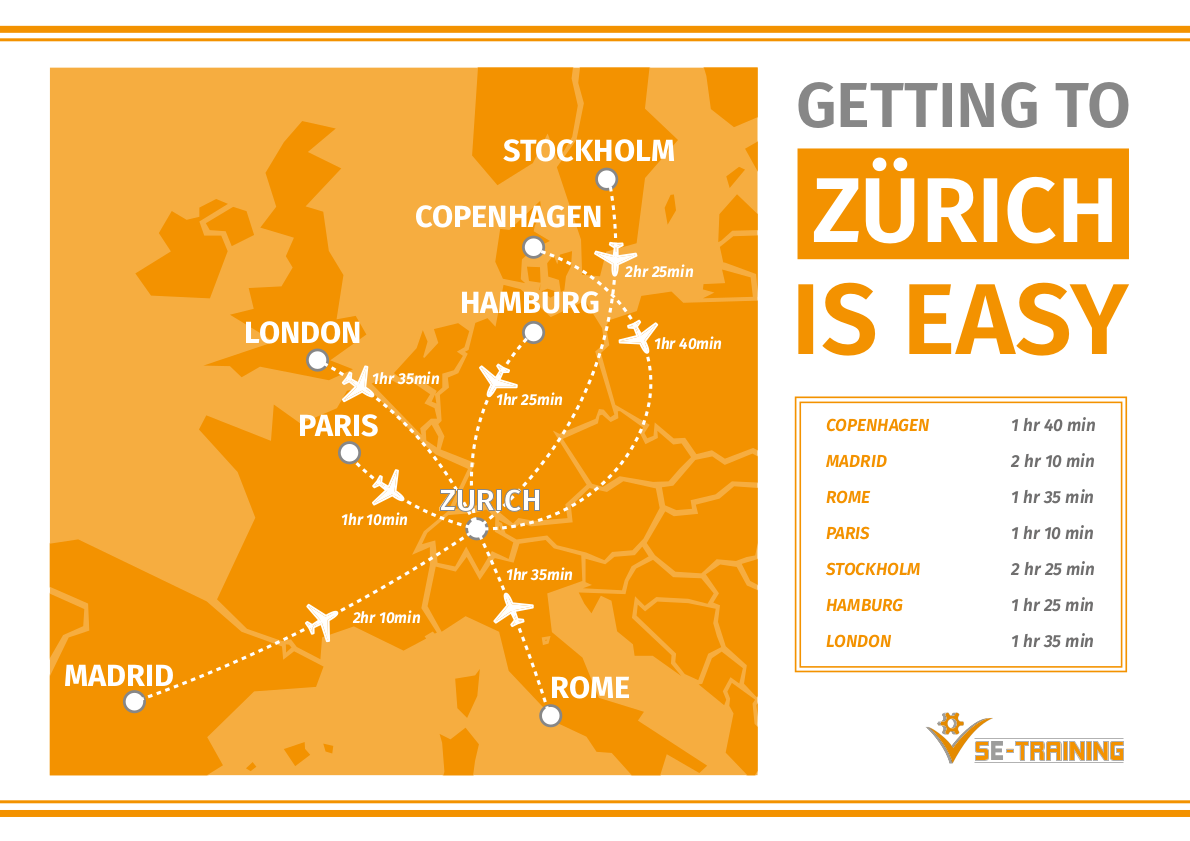
El Equipo
Somos un equipo internacional de expertos en Systems Engineering en diversas disciplinas.
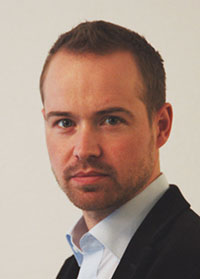 Seb Klabes
Seb KlabesSebastian ha escrito y revisado diversas publicaciones y disfruta implementado los principios de la ingeniería de sistemas.
Posteriormente a haber trabajado en el Institute of Transport…
Seb Klabes
Sebastian ha escrito y revisado diversas publicaciones y disfruta implementado los principios de la ingeniería de sistemas.
Posteriormente a haber trabajado en el Institute of Transport Science de RWTH Aachen como asociado en investigación, trabajó en el German Aerospace Center como Oficial de Proyecto y como Ingeniero de Project Systems en Bombardier.
Actualmente encabeza el departamento RAMS en la división de movilidad de Siemens. Está activamente involucrado en el Comité Swiss Society of Systems Engineering. Es un profesional de ingeniería de sistemas certificado e imparte formación sobre ingeniería de sistemas en Siemens.
Sebastian disfruta afrontando desafíos organizacionales y técnicos con un system thinking solido.


 Mike Johnson
Mike JohnsonMike ha trabajado liderando roles desafiantes de desarrollo de productos predominantemente en las Industrias de Defensa y Espacio desde que completó su Maestría en Fotónica…
Mike Johnson
Mike ha trabajado liderando roles desafiantes de desarrollo de productos predominantemente en las Industrias de Defensa y Espacio desde que completó su Maestría en Fotónica y Dispositivos Optoelectrónicos en la Universidad de St Andrews, Reino Unido.
Ha trabajado predominantemente en los roles de Ingeniero de Sistemas, liderando desarrollos técnicos que involucran equipos interdisciplinarios que a menudo consisten en Ingeniería Mecánica, Eléctrica, Tecnología, Software e Ingeniería Óptica. Trabajó en RUAG Space, Zürich durante cinco años. Durante este período se trasladó a la administración, liderando el grupo de Ingeniería de Sistemas en la unidad de producto Optoelectrónica e Instrumentos. Además, impartió cursos de capacitación en ingeniería de sistemas a los empleados de toda la compañía, capacitando a cerca de 100 ingenieros, desde principiantes hasta avanzados.
Después de haberse trasladado a Roche Diagnostics International para dirigir el equipo de Ingeniería de Sistemas en Rotkreuz, Suiza, está ahora aplicando apasionadamente su experiencia y conocimiento de Ingeniería de Sistemas a la industria de la Salud.
Le apasiona el desarrollo de productos y especialmente la aplicación de Ingeniería de Sistemas. Es uno de los fundadores de la Sociedad Suiza de Ingeniería de Sistemas (SSSE) y asiste regularmente a conferencias / seminarios IET e INCOSE en Suiza. Es el organizador de SWISSED, la conferencia suiza anual sobre Ingeniería de Sistemas. Además, es el cofundador de SE-Training GmbH, empresa especializada en la entrega de cursos de formación en Ingeniería de Sistemas de alta calidad en Suiza.
Chartered Engineer (IET 97325920) y Chartered Systems Engineering Professional (CSEP).

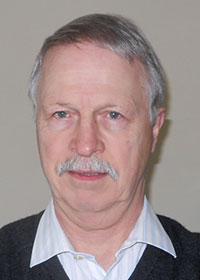 Niels Malotaux
Niels MalotauxNiels Malotaux es un Project Coach independiente, experto en optimizar el rendimiento de proyectos. Cuenta con 40 años de experiencia diseñando sistemas electrónicos…
Niels Malotaux
Niels Malotaux es un Project Coach independiente, experto en optimizar el rendimiento de proyectos. Cuenta con 40 años de experiencia diseñando sistemas electrónicos y de software en la Universidad de Delft, en la Armada Holandesa, en Philips Electronics y 20 años liderando una empresa de diseño de sistemas. Desde 1998 se ha dedicado a asesorar proyectos y empresas para que puedan entregar “Quality On Time “ : realizar la entrega dentro del plazo estimado y asegurar el éxito del cliente. Para tal efecto, Niels desarrolló la manera de dar una formación efectiva de los métodos de Evolutionary Project Management ( Evo ), Requirements Engineering, Review and Inspection techniques así como Reliable Embedded Systems Design y cómo conseguir Zero Defects. Des del 2001 ha impartido cursos y ha asesorado unos 400 proyectos en más de 40 organizaciones en Holanda, Bélgica, China, Alemania, Irlanda, India, Israel, Japón, Polonia, Rumania, Serbia, Sud África, UK y USA, lo que le ha permitido adquirir una amplia experiencia en entender que enfoques son los más apropiados y la práctica de los que están teniendo un peor funcionamiento.

 Richard Maguire
Richard MaguireRichard Maguire BEng, MSc, CEng, FIMechE, MSaRS, MBCS tiene una vasta experiencia en Ingeniería de seguridad en varias tecnologías incluyendo aviación, armamentística, sistemas de comunicación,…
Richard Maguire
Richard Maguire BEng, MSc, CEng, FIMechE, MSaRS, MBCS tiene una vasta experiencia en Ingeniería de seguridad en varias tecnologías incluyendo aviación, armamentística, sistemas de comunicación, vehículos, sistemas aéreos sin tripulación y plataformas y software submarino. En particular, Richard ha trabajado el análisis post-accidental y análisis de tensión predictiva y modelaje de la dinámica de fluidos computacional para petróleo, gas y sistemas de tuberías de protección contra incendios. Como especialista renombrado juega un papel clave en el desarrollo de los standards de seguridad y software de UK y ha publicado una amplia gama de diferentes textos. Además, es el autor del popular libro “Safety Cases and Safety Reports - Meaning, Motivation and Management “. Debido a su posición dentro del ámbito de la seguridad, Richard ha dado clases en diversas instituciones incluyendo: Universidad de York, Safety Critical Systems Master’s Degree; Empire Test Pilot School – Aviation System Safety, Universidad de Munich – Modelling Human Reliability.

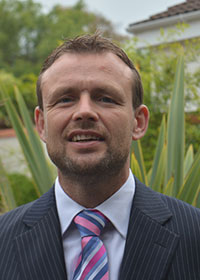 Jim Mateer
Jim MateerJIM MATEER BSc, MSc, MIET, MRAeS tiene formación en ingeniería dentro del entorno hazardous fast jet and weapons.
Sin embargo, durante los doce últimos años se…
Jim Mateer
JIM MATEER BSc, MSc, MIET, MRAeS tiene formación en ingeniería dentro del entorno hazardous fast jet and weapons.
Sin embargo, durante los doce últimos años se ha especializado en ingeniería de seguridad y dirección en diversos ámbitos incluyendo aviación, armas, comunicaciones, autonomía, vestuario de protección, pilas de hidrógeno, vehículos blindados y software. Durante el tiempo que trabajó con un fabricante de electrónica, se especializo en seguridad de producto conforme a la legislación de EU y CE Marking. El estudio que realizó en la Universidad de York en Critical Systems Safety Engineering culminó con la presentación de su investigación en Assessment of Safety Related Information Systems. Recientemente Jym ha llevado a cabo servicios independientes sobre Safety Auditing para el grupo del Ministerio de Defensa Inglés en material de vehículos de combate blindados y ha asesorado a los fabricantes de aviación para mejorar la gestión de la aeronavegabilidad. Jim desarrollo dos cursos de seguridad sobre identificación segura de riesgos y gestión de la valoración y la seguridad.

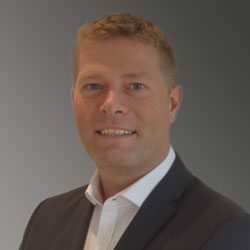 Piet Belgraver
Piet BelgraverPiet Belgraver comenzó su carrera como ingeniero de desarrollo electrónico para varias empresas de ingeniería en los Países Bajos. Continuó ampliando su experiencia técnica en…
Piet Belgraver
Piet Belgraver comenzó su carrera como ingeniero de desarrollo electrónico para varias empresas de ingeniería en los Países Bajos. Continuó ampliando su experiencia técnica en la industria electrónica de consumo de gran volumen como ingeniero de diseño senior cuando se mudó a Dinamarca. Durante este tiempo, asumió el rol de líder del proyecto de hardware para varios teléfonos móviles conocidos de Nokia. En su posición, su enfoque fue coordinar los equipos de proyectos locales y globales para lograr entregas puntuales en fábricas de todo el mundo.
Después de seis años trabajando para Nokia, se mudó a Suiza para trabajar en la industria aeroespacial en RUAG Space. En 2016 se trasladó a Thales Alenia Space cuando parte de RUAG Space se vendió a Thales Alenia Space. Actualmente ocupa el puesto de gerente sénior de proyectos de varios proyectos espaciales en Thales Alenia Space.
Es gerente de proyectos senior certificado (IPMA) con más de 15 años de experiencia en la gestión de proyectos técnicos que van desde productos electrónicos de consumo de alto volumen hasta la industria aeroespacial de alta calidad.

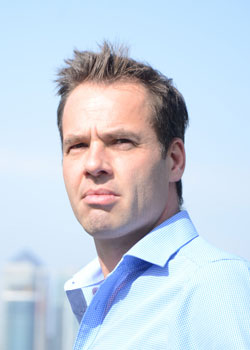 Marco Di Maio
Marco Di MaioMarco has had many roles in Systems Engineering: Professor at a technical university, and Consultant for and Employee in the development of complex systems. He…
Marco Di Maio
Marco has had many roles in Systems Engineering: Professor at a technical university, and Consultant for and Employee in the development of complex systems. He was the managing director of projectglobe - a boutique consultancy firm specialising in Model Based Systems Engineering (MBSE) and Information Management (IM) to support innovation driven engineering projects. Major customers are the fusion research community, the automotive industry, and 3D laser-welding and robotics companies.
Marco holds a PhD in nuclear engineering and a Masters in Operational Research. In his role as research fellow at Europe's largest fusion laboratory, JET near Oxford, he devised a novel diagnostic system, which earned him a world-wide patent. Marco then worked for the automotive industry managing product development and launch projects for the emerging markets of Eastern Europe and Russia before co-founding projectglobe with the purpose to devise novel methodologies, frameworks and tools that combine MBSE with IM to enable effective innovation and product development.
Together with partners from industry and academia, projectglobe have developed CLOSE - a Closed-Loop MBSE methodology based on robust semantic reference model. This model allows to automatically generate the required engineering artefacts in the correct format for SE teams and domain experts alike. The loop is closed by so-called "Experimentable" Digital Twins that provide in-the-loop feedback for all developers throughout the whole product life cycle. CLOSE runs on projectglobe's fractal data engine and thus allows for unlimited scalability in managing all project information.



 Sandra Roth
Sandra RothSandra is a leadership, team and change management coach with a decade of experience in R&D as a usability engineering expert, user experience leader and…
Sandra Roth
Sandra is a leadership, team and change management coach with a decade of experience in R&D as a usability engineering expert, user experience leader and SW development department head in a global medical device manufacturer.
Sandra has a M.Sc. in Psychology, a Ph.D. in Human Computer Interaction and holds several coaching degrees.


 Hakan Hasserbetci
Hakan HasserbetciHakan acts as a Data Protection Officer in Path Duesseldorf GmbH and manages international Data Privacy projects. He has been implementing Codes of Conduct of GDPR…
Hakan Hasserbetci
Hakan acts as a Data Protection Officer in Path Duesseldorf GmbH and manages international Data Privacy projects. He has been implementing Codes of Conduct of GDPR across diverse organizations. He is actively training Data controllers and data processors according to GDPR.
In Hakan's 20 year+ experience he has worked across ICT, Automotive, Packaging Corrugated and Textile industries and acted as:
- Director in Sales & Marketing, Business Development & Global Key Accounts &
Channel Alliances in Mobile Network Operators.
• Project manager in Data Protection/Privacy & Cyber Security in Automotive, Medical,
SW Houses, Distribution.
• Project manager in CRM & e-commerce & Sw. Development in SMEs.
• Trainer in GDPR and DPO Practices.
• DPO in Data Privacy and Compliancy Projects


 Stephan Marwedel
Stephan MarwedelStephan works as a product security engineer at Airbus commercial aircraft. In his work, he brings together diverse engineering disciplines, such as hardware and software…
Stephan Marwedel
Stephan works as a product security engineer at Airbus commercial aircraft. In his work, he brings together diverse engineering disciplines, such as hardware and software engineering, mechanical engineering, safety and reliability and cyber security aiming at creating safe and secure solutions.
Stephan has more than 30 years of experience at software and systems engineer in diverse areas, such as chip design, secure networking, health care, online banking and logistics. He spend ore than half of his professional life at Airbus commercial aircraft working as a systems engineer on aircraft communication systems and as an product security engineer on communication and recording systems as well as landing gear systems. He is actively involved in developing security standards by particiating in international working groups at EUROCAE, AEEC and SAE.





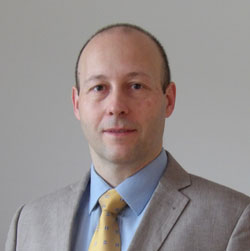 Marco Serra
Marco SerraMarco’s professional experience, built over almost 30 years of working with clients in North America, Europe and Southern Africa, spans diverse roles in the aerospace,…
Marco Serra
Marco’s professional experience, built over almost 30 years of working with clients in North America, Europe and Southern Africa, spans diverse roles in the aerospace, automotive, defence and energy industries. For example, as Systems Engineer Marco was involved in the initial conceptual development and technology transfer assessment of a sample handling and analysis system intended to receive and analyse material returned to Earth on Nasa’s Mars Sample Return Mission. Marco also spends significant time consulting in the Oil & Gas and Energy industries providing system and component design support, conducting failure investigations, providing technical expertise in legal disputes, validating system designs, and developing analysis methodologies for complex fluid-mechanical simulations. More recently, Marco has been working on the thermomechanical design of optical terminals for inter-satellite communications.
Marco holds a Masters Degree in mechanical engineering from the University of Pretoria, South Africa (1993). He also holds a Masters Degree in Engineering and Management from the Massachusetts Institute of Technology, USA (2002), with a focus on Systems Architecture, Systems Engineering, and System and Project Management.


 Gordon Woods
Gordon WoodsGordon has a wealth of experience in requirements management, driving innovations in the defence, aerospace and nuclear and rail industries. He has previously worked on…
Gordon Woods
Gordon has a wealth of experience in requirements management, driving innovations in the defence, aerospace and nuclear and rail industries. He has previously worked on fast jets, military drones, UK and US tank system and trainers, satellite systems and nuclear submarines. For the last eight years he has specialised in supporting requirements management in rail projects including HS2 and East West Rail in the UK; High Speed Rail, Mass Rapid Transit, Light Rail Transit projects in Malaysia; the Qatar metro and tram projects; the Riyadh metro and lately the NEOM Backbone railway projects in Saudi Arabia.
He has brought his own unique style to the elicitation and specification of requirements, the Verification and Validation of the design products and safety assurance, all within a progressive assurance environment.

 Oliver Fels
Oliver FelsOliver Fels has been the first independent European speaker at the 1997 JAVAOne conference and the first independent to speak three years in a row.
Since…
Oliver Fels
Oliver Fels has been the first independent European speaker at the 1997 JAVAOne conference and the first independent to speak three years in a row.
Since then, Oliver Fels has been working in major industries developing complex systems, filling various roles - as a project manager, department lead, systems engineer, architect, product owner, requirements and methodology engineer, and more.
As a leading systems engineer, he supported revolutionize the Zürich public transport system, being responsible for the new passenger information concept.
In a department lead role, he redesigned hands-on the first and business class sections for the 21st century of various international airlines.
With his high interest for sustainability and renewable energy, Oliver was also an active member of the Solar Impulse 2 project, the first solar flight around the world accomplished by Swiss entrepeneur and pioneer Bertrand Piccard.
Oliver is currently actively supporting sustainability and renewable energy projects using blockchain technology and is the inventor of the sustainability engineering methodology, which uses system engineering principles to aid enterprises structuring their sustainability strategies.
Oliver has held several speeches and international workshops in the area of systems engineering, IT security, and software development as well as coached engineers in leadership, requirements engineering, and other topics.
Having worked in various diversity environments, he highly emphasizes an intercultural and interoperational approach to working with people in which individualtiy and empathy are highly valued. As such, bringing his broad expertise to a wider audience is an important passion for him.
Oliver holds an egineering degree in computer science and electrical engineering.


 Kevin Howard
Kevin HowardDr Kevin Howard has more than 40 years’ experience in engineering. He initially worked in radar and radio frequency systems, and for the last 25…
Kevin Howard
Dr Kevin Howard has more than 40 years’ experience in engineering. He initially worked in radar and radio frequency systems, and for the last 25 years has focused on Systems Engineering and managing complexity. He has been Chief Engineer for a range of systems ranging from military vehicles to space-based sensor systems. He has been VP Systems Engineering for a Global organisation providing safe city and big data technology. He now provides Systems Engineering consultancy, and as Engineering Director helped establish Optima Systems Consultancy Ltd as one of the leading Systems Engineering specialists providing consultancy to the defence and energy sectors around the world.
Kevin has a PhD in Optimising Complex Systems, supported by Post Graduate qualifications in Psychology and Business Administration. He is a Chartered Engineer, an external examiner for Cranfield University.

 Christoph Bisel
Christoph BiselIn 1999, Christoph put his existing experience as a project manager on a solid footing with a degree in project management with a federal certificate.…
Christoph Bisel
In 1999, Christoph put his existing experience as a project manager on a solid footing with a degree in project management with a federal certificate. Since then he has managed projects of various sizes for various companies and was also responsible for the project management of various national branches of an american software manufacturer. He is an accredited trainer for the project management frameworks Prince2™, Prince2™ Agile and AgilePM® (DSDM Framework).
He first came into contact with Scrum in 2008 and since then has continuously expanded his knowledge and experience with this framework and other frameworks.
Christoph has coaching training as well as a degree and experience as a mediator and is therefore not only able to provide professional support, but also to provide support in personally challenging situations.
As a trainer, consultant and coach, he has been supporting companies in Europe in project management, Scrum, Kanban, Design Thinking, Lego® Serious Play®, OKR and various other methods and frameworks for 5 years.


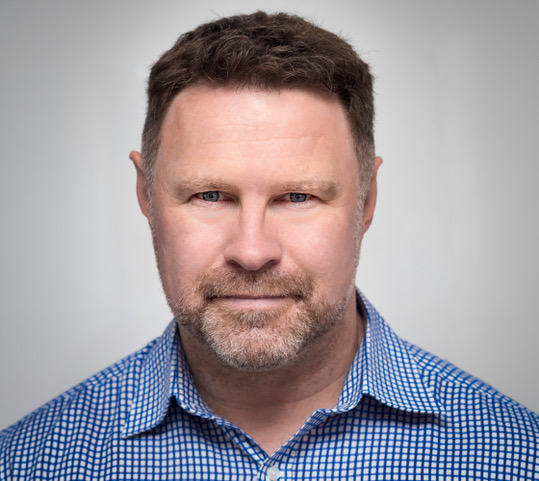 Pete Burgess
Pete BurgessPete has worked leading complex system development within the Defence, Security and Aerospace industries across the UK, US and Middle East.
He has worked from high…
Pete Burgess
Pete has worked leading complex system development within the Defence, Security and Aerospace industries across the UK, US and Middle East.
He has worked from high level concepts to delivery of integrated systems, from requirements capture to user acceptance, bringing together technical teams to deliver and exceed customer expectations.
Pete started his career as an Engineering Apprentice within the British Army, rapidly promoted to Corporal and deployed to Kosovo during the Balkans conflict as well as multiple peace-time training activities across the globe. Beginning his career this way has given him an excellent insight into the needs of the user within the Defence industry as well as the ability to adapt to many different environments. From here, he worked with way up through different Engineering roles, to a Team Lead and Engineering Manager within Boeing Defence UK. This role provided him with the opportunity to teach and mentor all technical and programme staff to have an understanding and appreciation of how Systems Engineering can enhance their own roles and projects, delivering training and mentoring across the entire UK business as well as their customers. Pete is now working as a Principal Consultant, continuing to deliver to customers and as well as develop his own skillset. Pete has been a member of the IET since 2011 as well as having a wide range of professional qualifications gained through his international experiences.

 Vincent Arnould
Vincent ArnouldVincent Arnould brings over two decades of experience as a versatile leader and expert in the field of System Engineering and Architecture. His career spans…
Vincent Arnould
Vincent Arnould brings over two decades of experience as a versatile leader and expert in the field of System Engineering and Architecture. His career spans in the defense domain, on avionics and maritime warfare systems. His expertise lies in Software Intensive Systems and Systems-of-Systems Architecture and System Engineering, supported by a robust skill set that includes transversal management, communication, and international collaboration. He has excelled in leadership roles at companies like Naval Group and Hensoldt Sensors GmbH, contributing to prestigious projects such as the Gowind-class Frigate, the Future Combat Air System (FCAS) and Maritime Airborne Warfare System (MAWS). Vincent's expertise lies in operational analysis, architectural design, and Model-Based System Engineering (MBSE), driving successful outcomes in the defense and avionics sectors. His transnational collaboration and commitment to rigorous quality standards like SysML further underscore his influence in the industry.


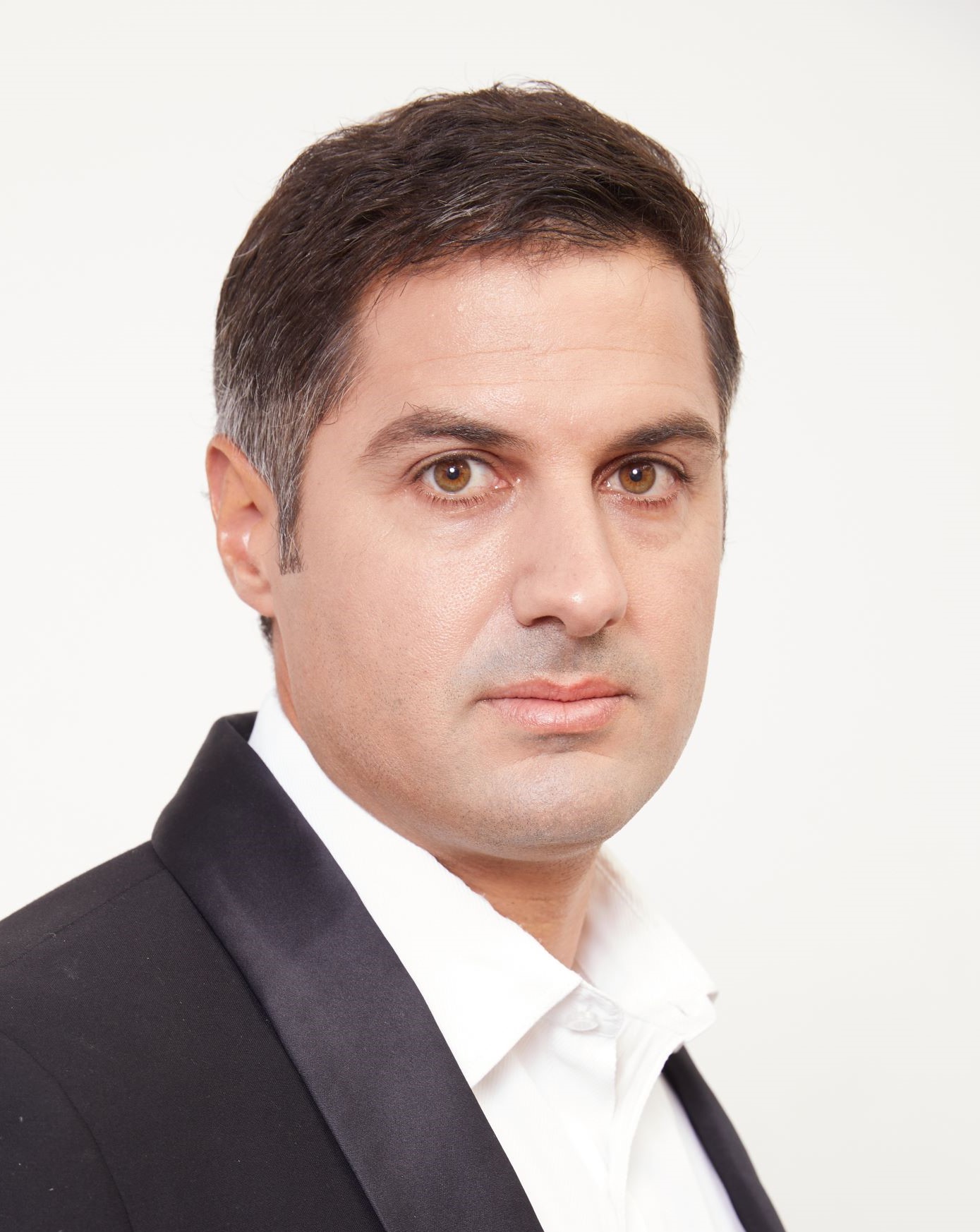 Martin Oswald
Martin OswaldMartin Oswald is a seasoned professional with a strong background in process management and product development. He holds certifications as a Systems Engineering Professional (C-SEP)…
Martin Oswald
Martin Oswald is a seasoned professional with a strong background in process management and product development. He holds certifications as a Systems Engineering Professional (C-SEP) and a Lean Trainer, and he actively serves as a committee member for the Swiss Chapter of INCOSE (SSSE). With a Master's degree in Mechanical Engineering and a vast career spanning various industries worldwide, including leadership roles at Belimo and Johnson & Johnson, Martin has a proven track record of excellence. He played a crucial role in establishing an Innovation Center in China for Johnson & Johnson and successfully built and currently leads a team for Process, Quality, and Compliance at Belimo.
Martin has a proven track record of delivering innovation and excellence in product development, project management, and quality control. Martin Oswald is a results-driven professional with a diverse skill set and a passion for process management and optimization. With a strong foundation in engineering and a commitment to excellence, he continues to make valuable contributions to organizations and process improvements.


Referencias
registrar
Email: info@se-training.net Dupdo
Correo
SE-Training GmbH
Bauelenzelgstrasse 20,
8193 Eglisau
EMAIL: info@se-training.net
Book Teams meeting
Perfil
SE-Training offers high-quality, specifically tailored solutions to support the unique needs of Engineering organisations across Europe. Through industrial and academic experts, SE-Training delivers value added customized engineering services, including accredited* training, to add and enhance complex product development and post-launch capabilities.
Founded in 2016 by two friends and fellow Systems Engineering Managers Sebastian Klabes and Mike Johnson, SE-Training has grown into a team of handpicked experts providing a wide range of in house, classroom and bespoke training packages and unique services such as coaching, audits and tools selection to enhance cross-functional skills and professional development.
* EduQua accredited
* Endorsed training provider for INCOSE UK.
* An approved educational provider for Temptraining.
Blog | Newsletters
 ON:SET
ON:SET ON:SET for March 2024: https://www.se-training.net/pdf/Newsletter_March%202024%20(1).pdf…
.jpg) SE-Training to Exhibit and Attend Swiss Medtech 2024
SE-Training to Exhibit and Attend Swiss Medtech 2024SE-Training to Exhibit and Attend Swiss Medtech 2024: Mastering Complexity in Technology Medical Swiss Medtech 2024, organised by the Swiss Medical Technology Association, stands as a…
 ON:SET
ON:SETDecember 2023 newsletter (PDF)…
